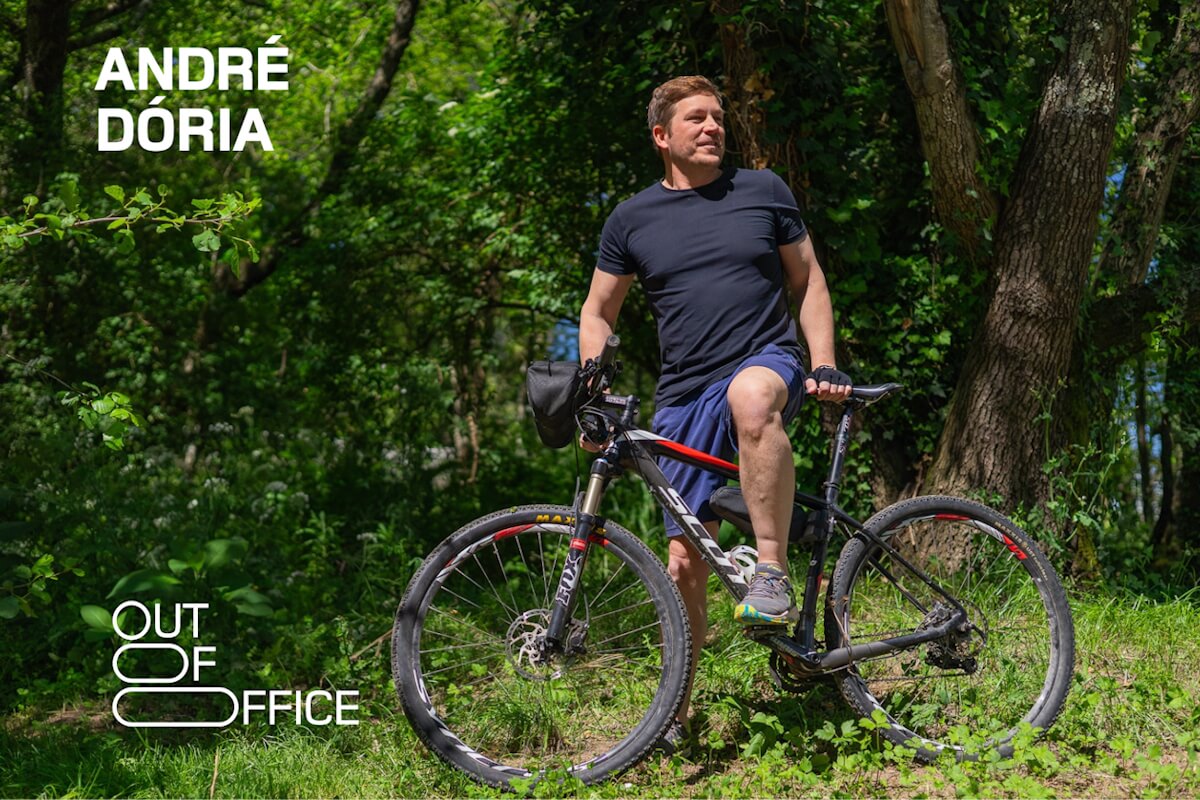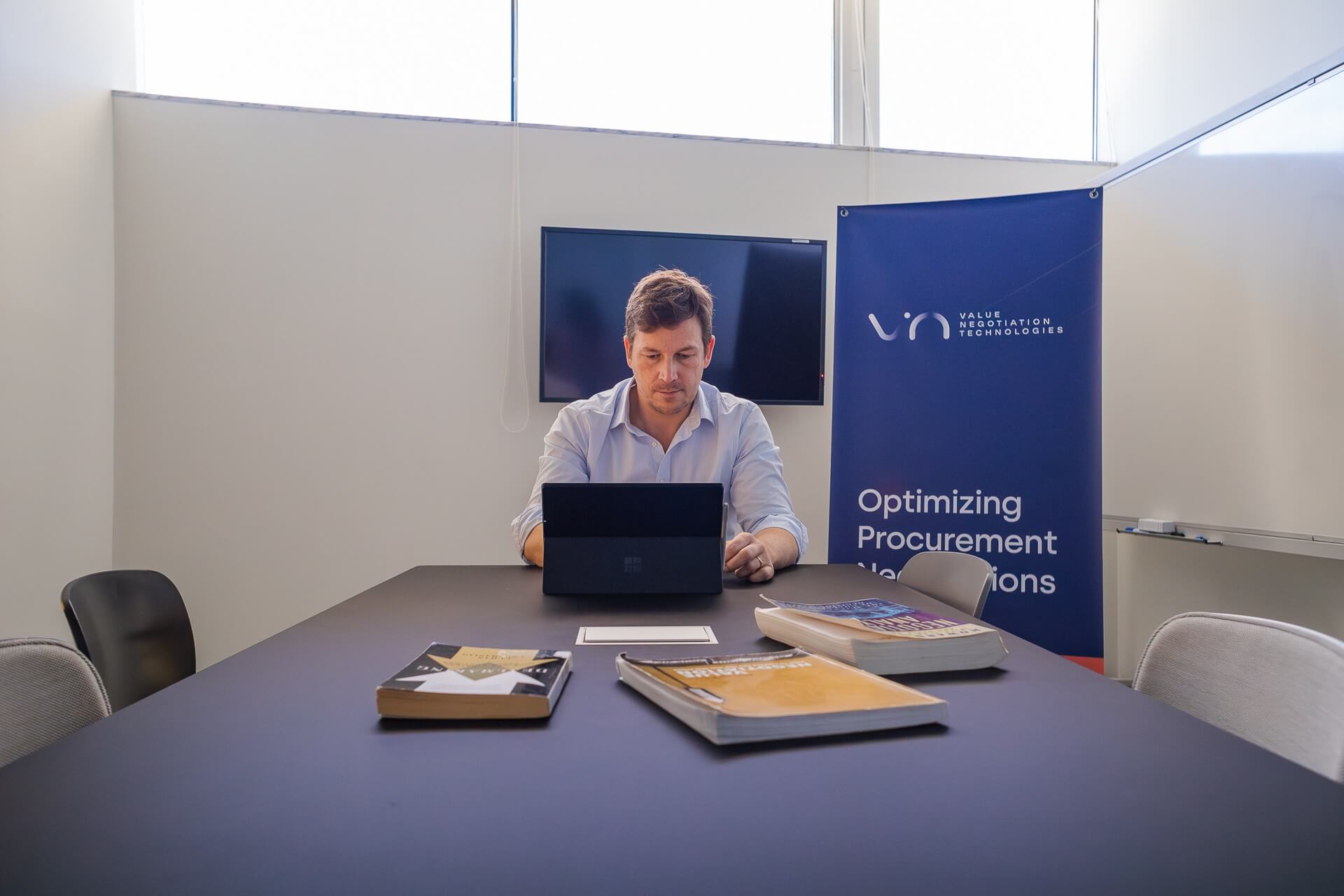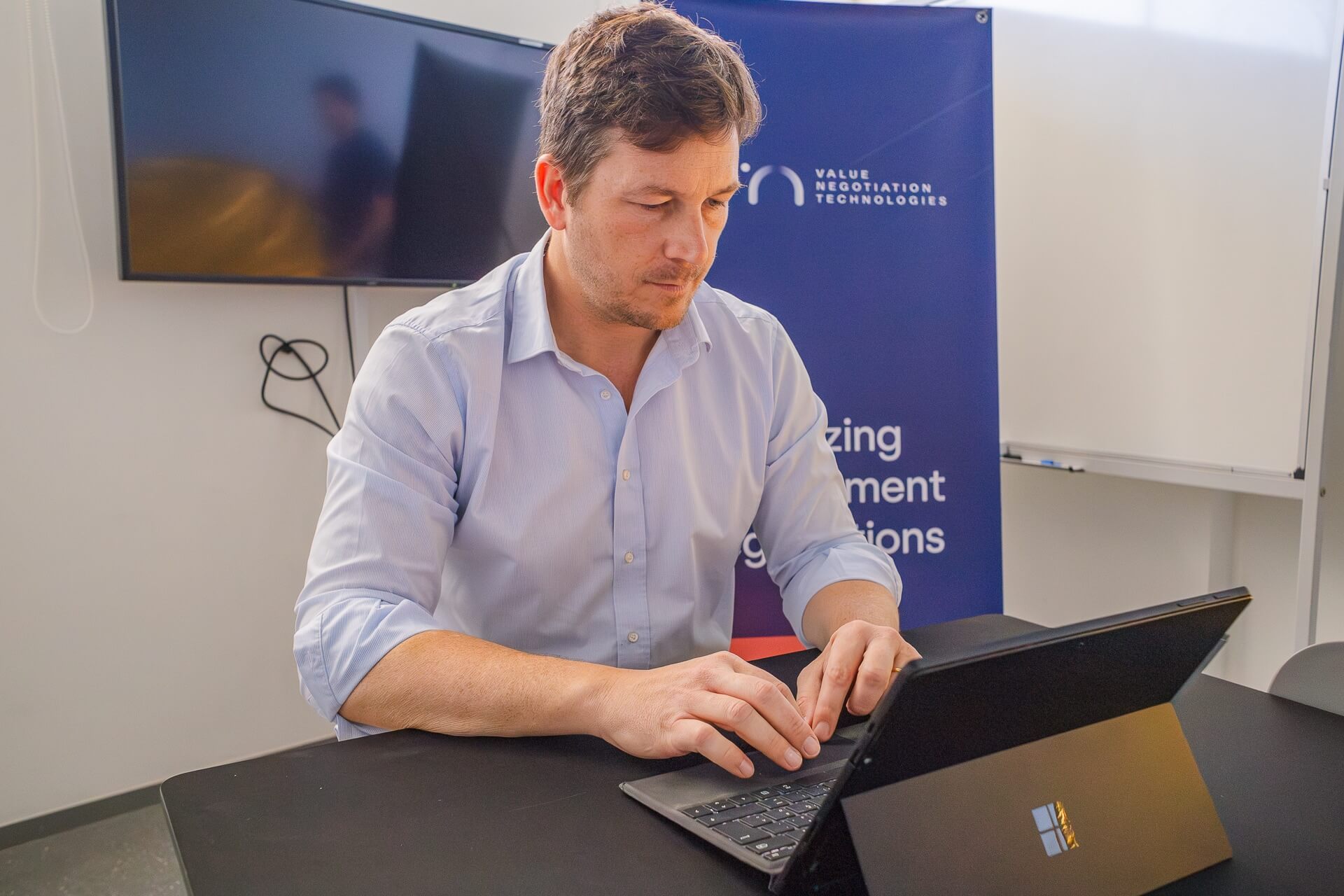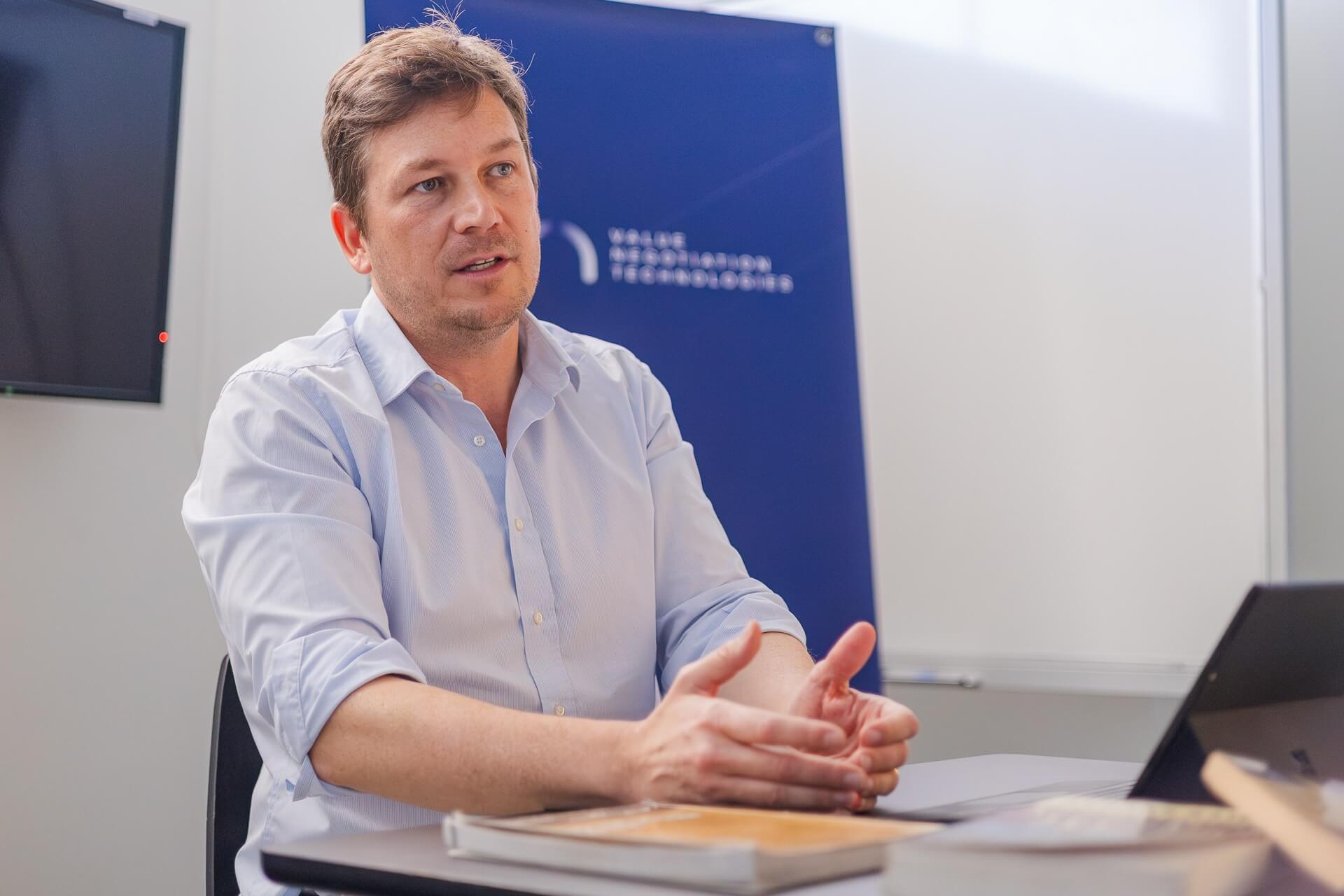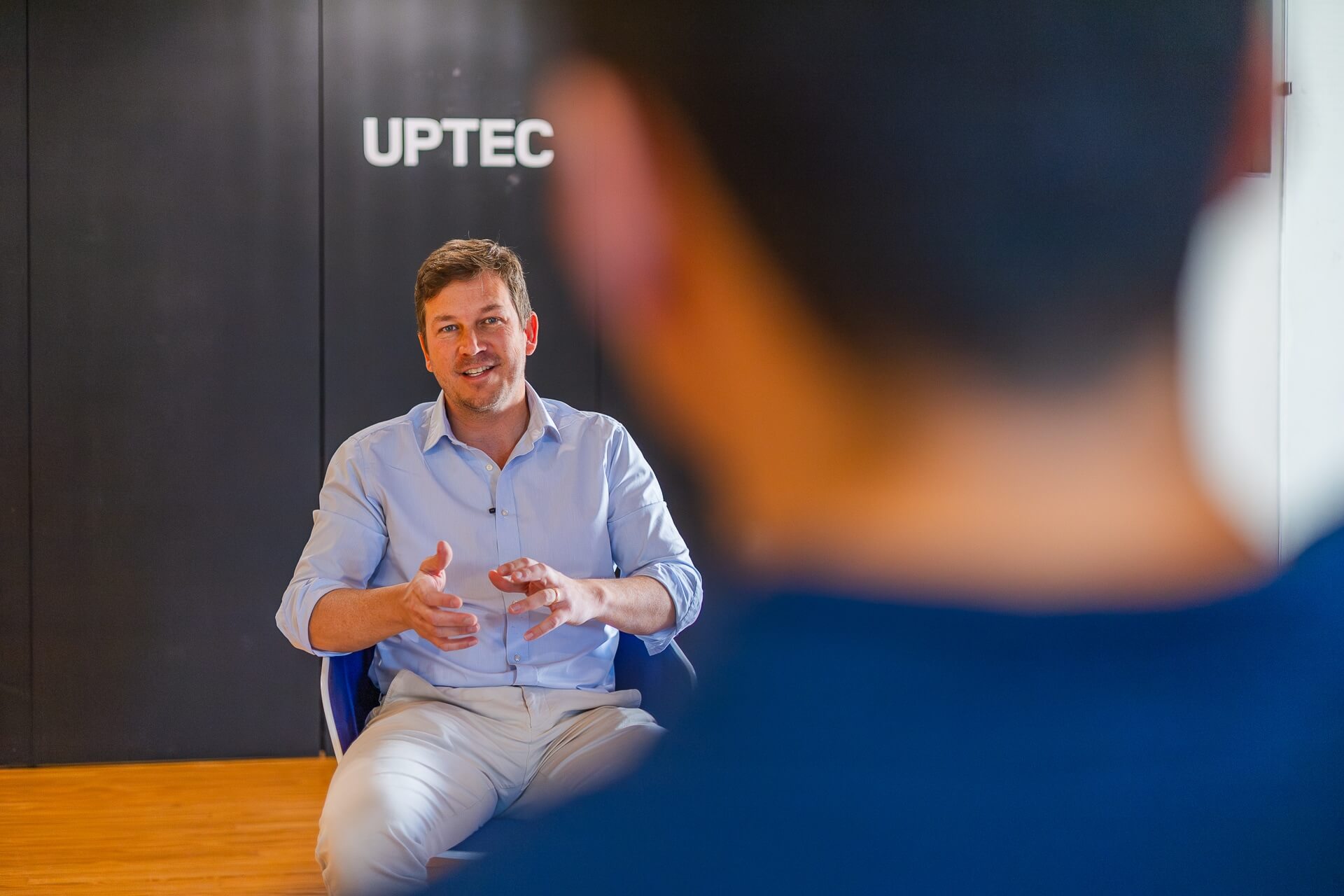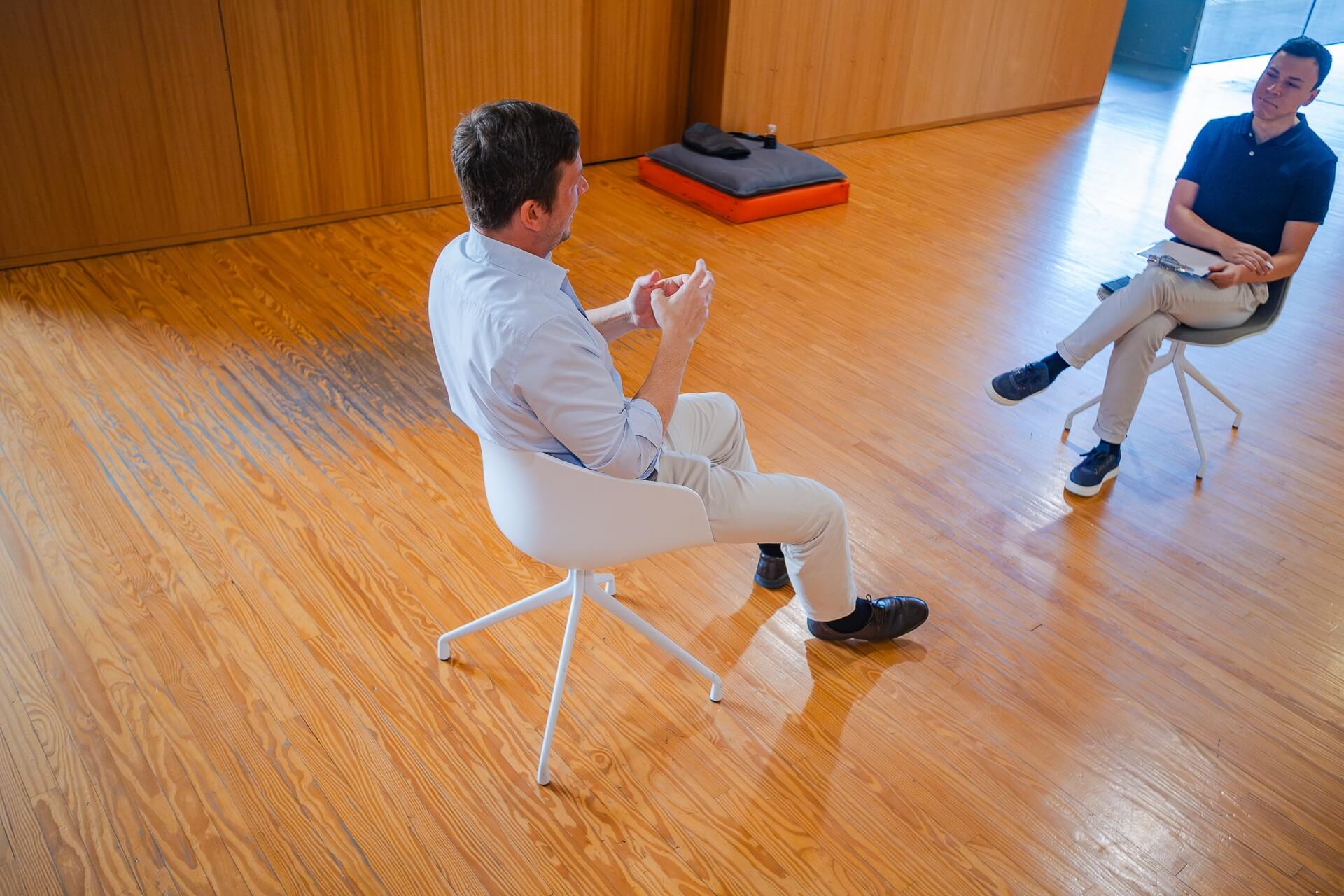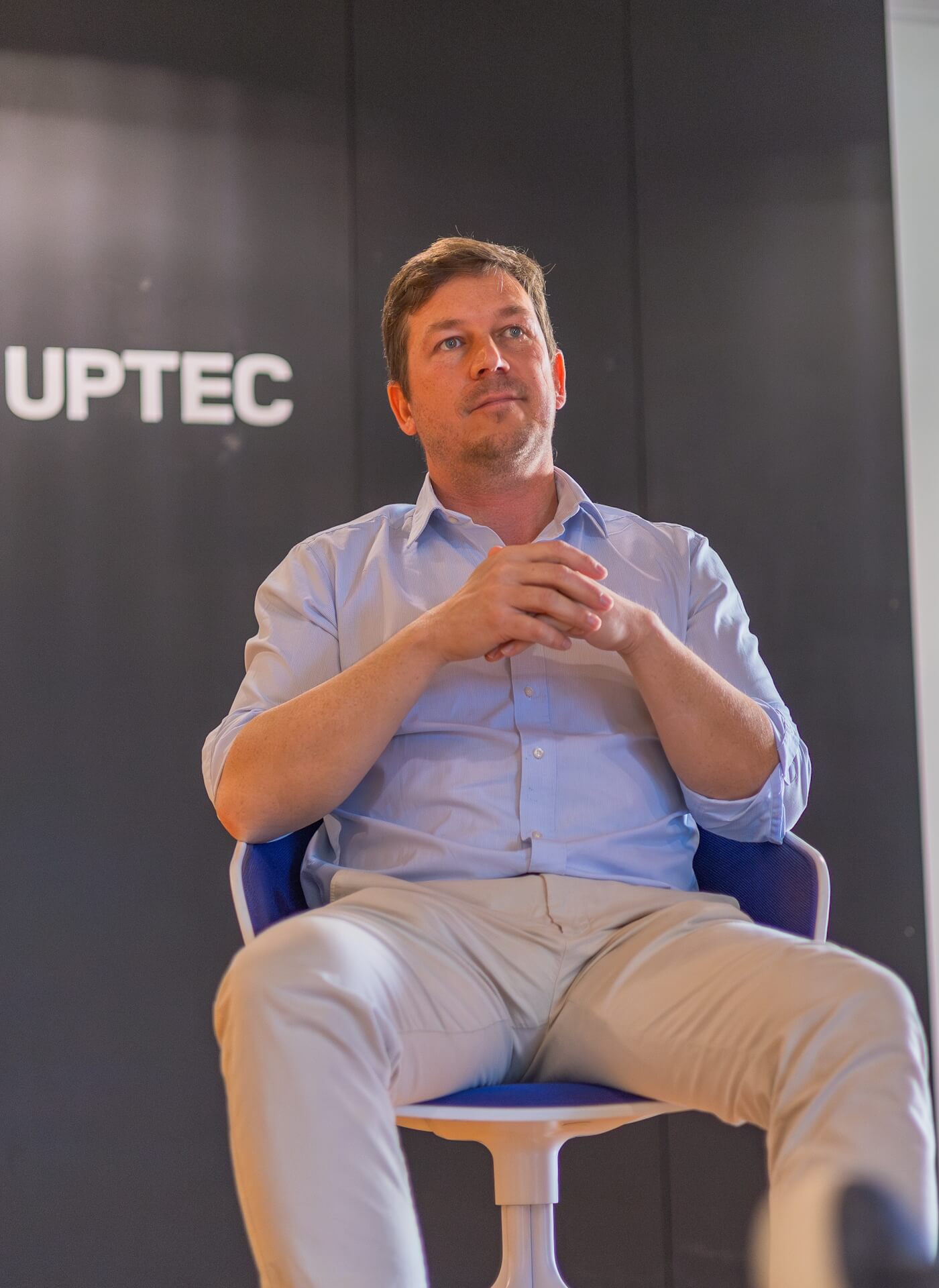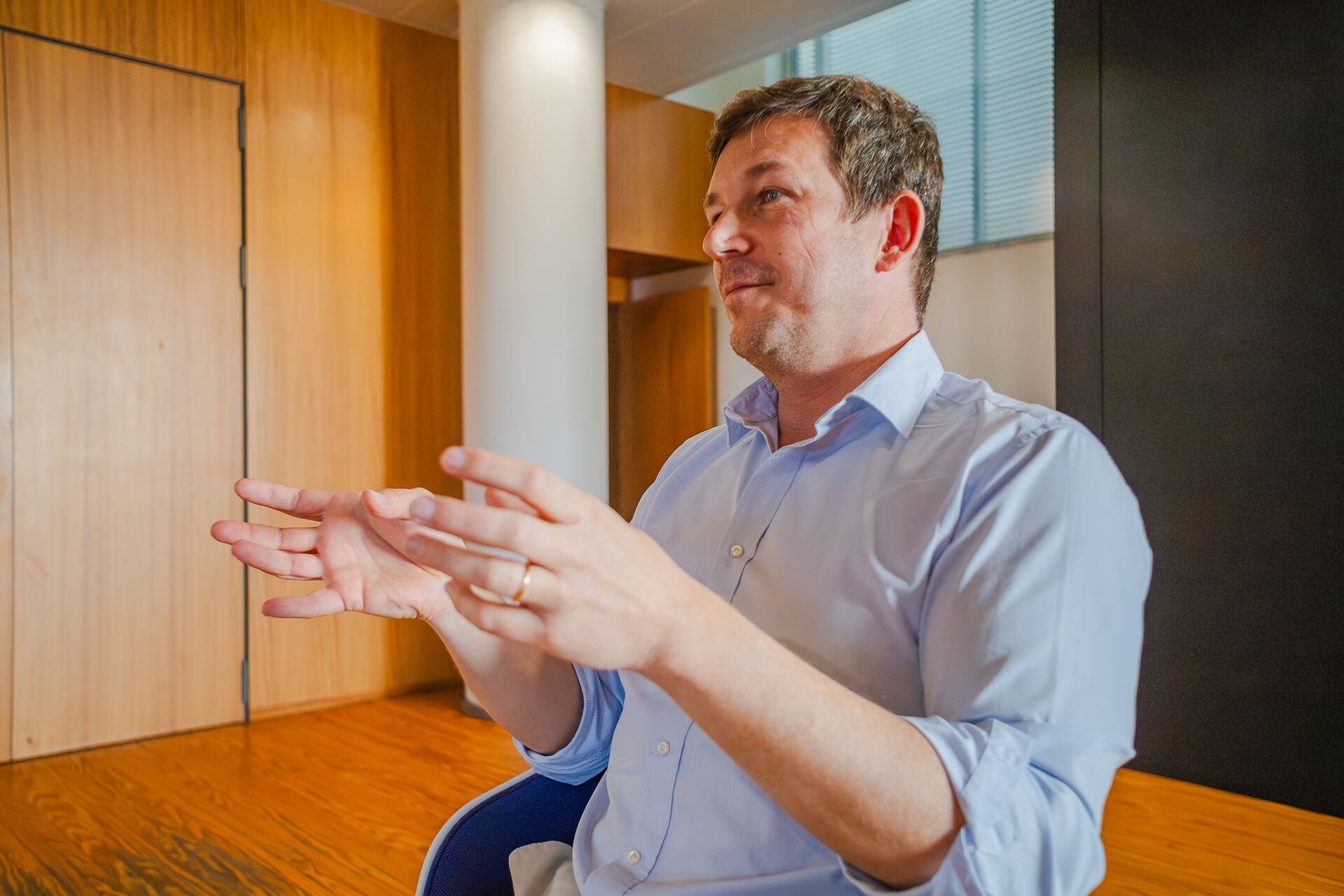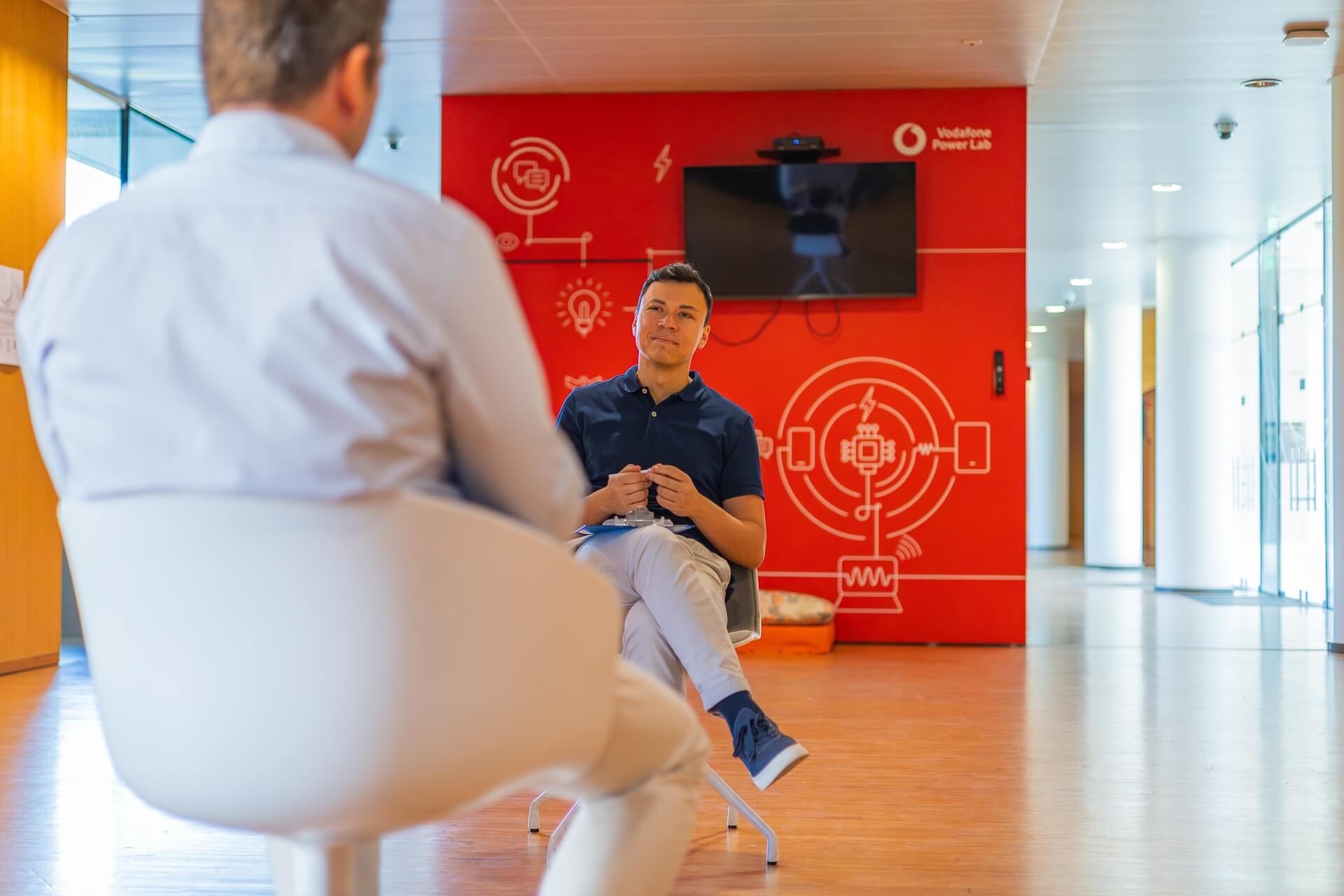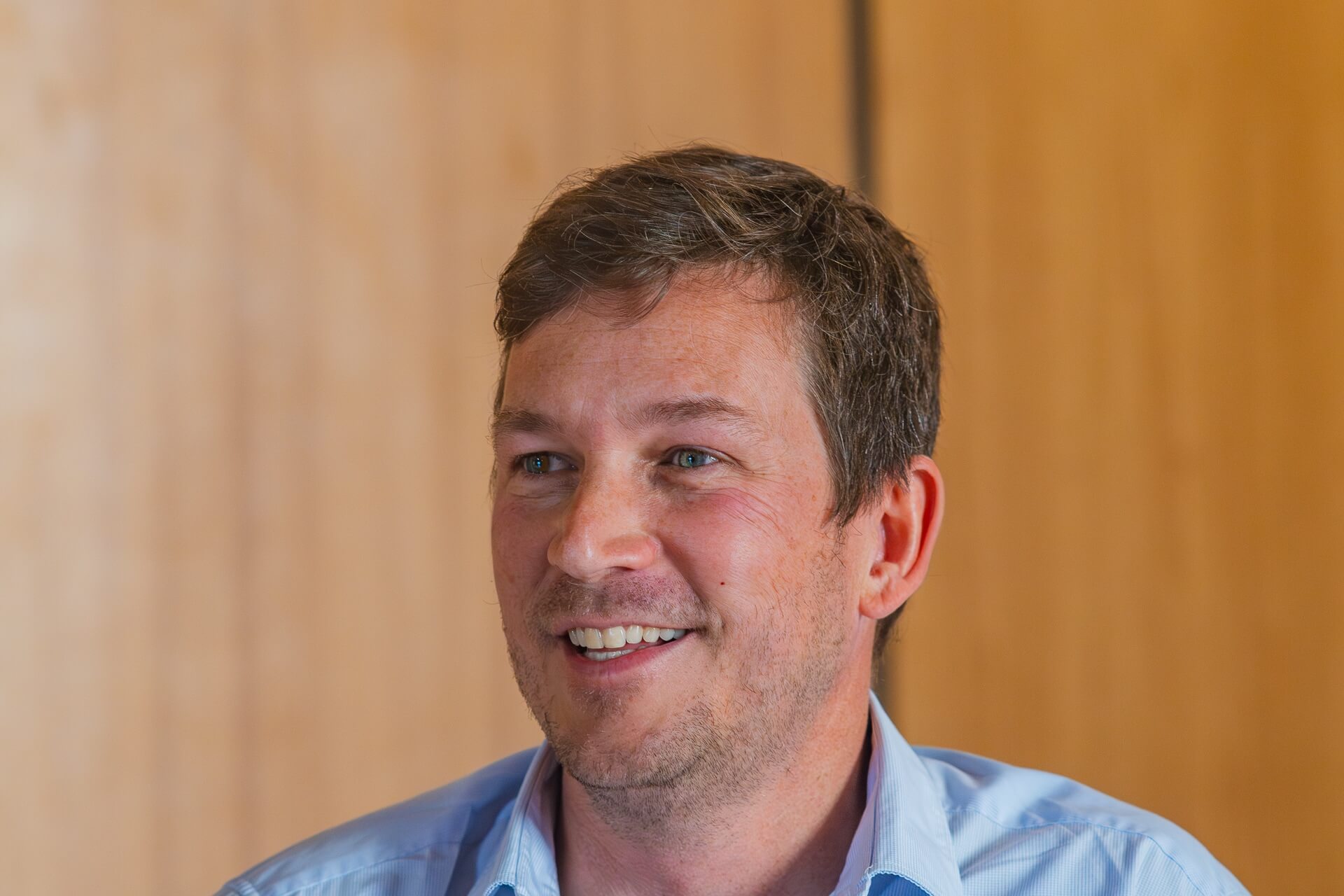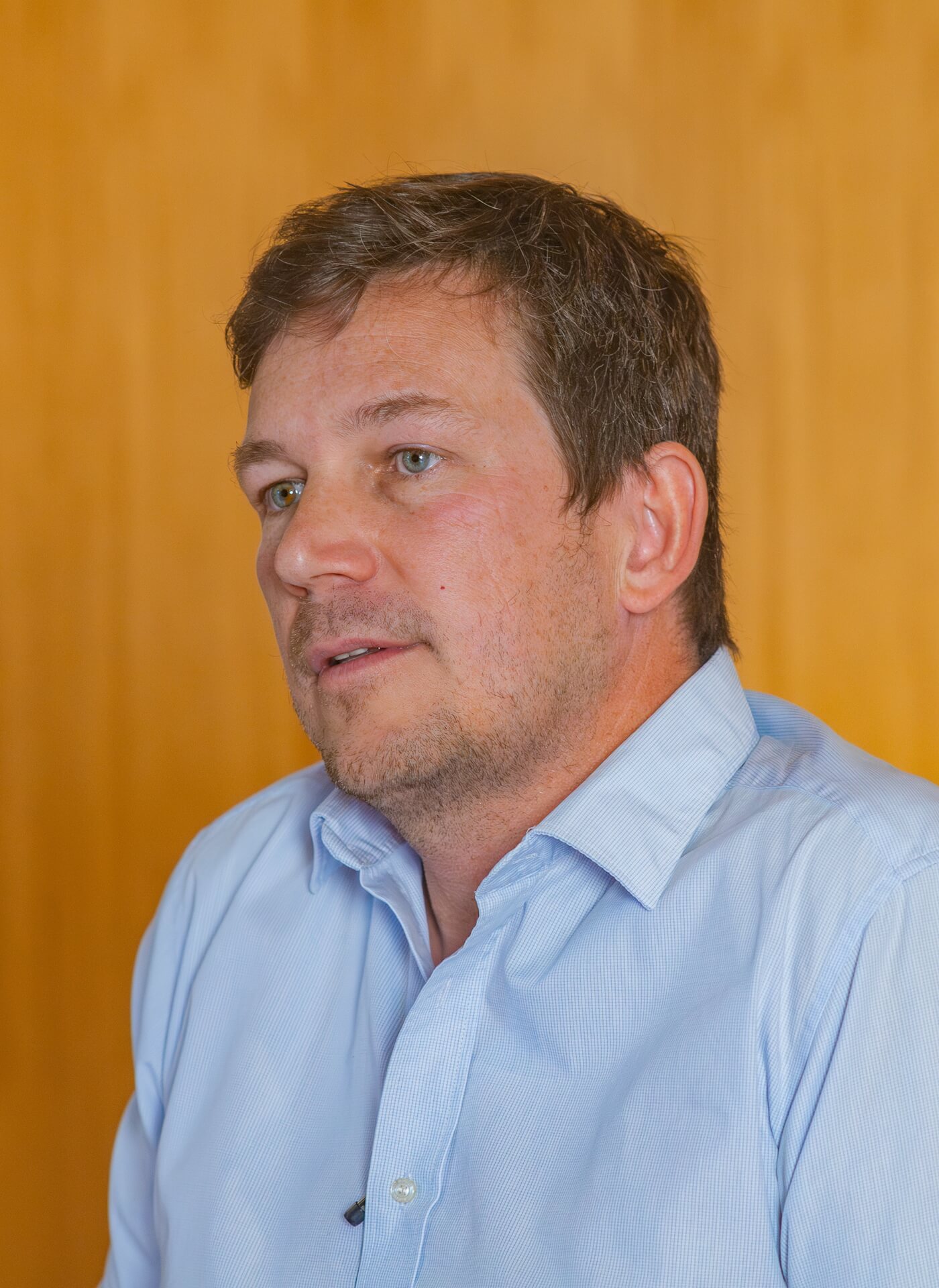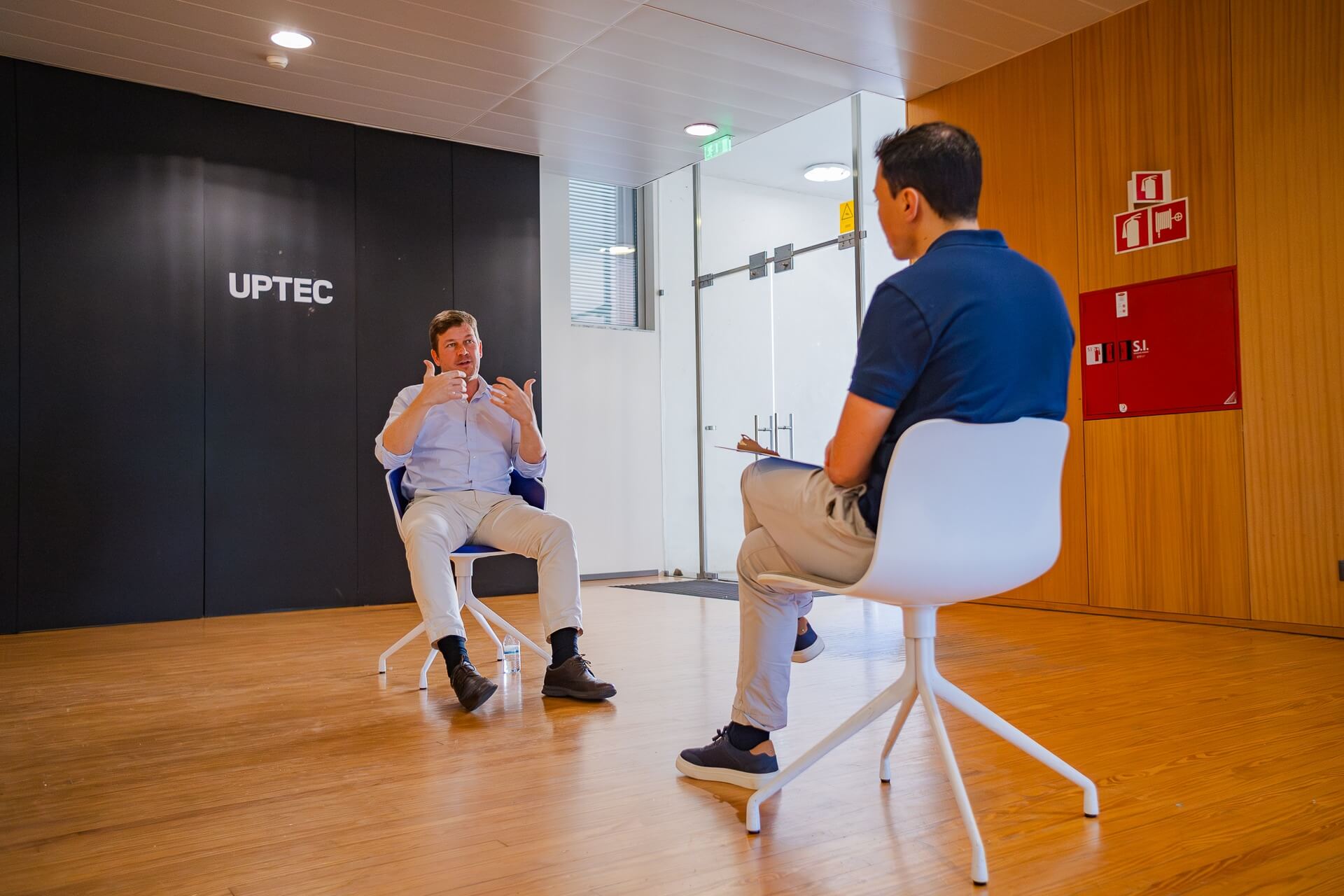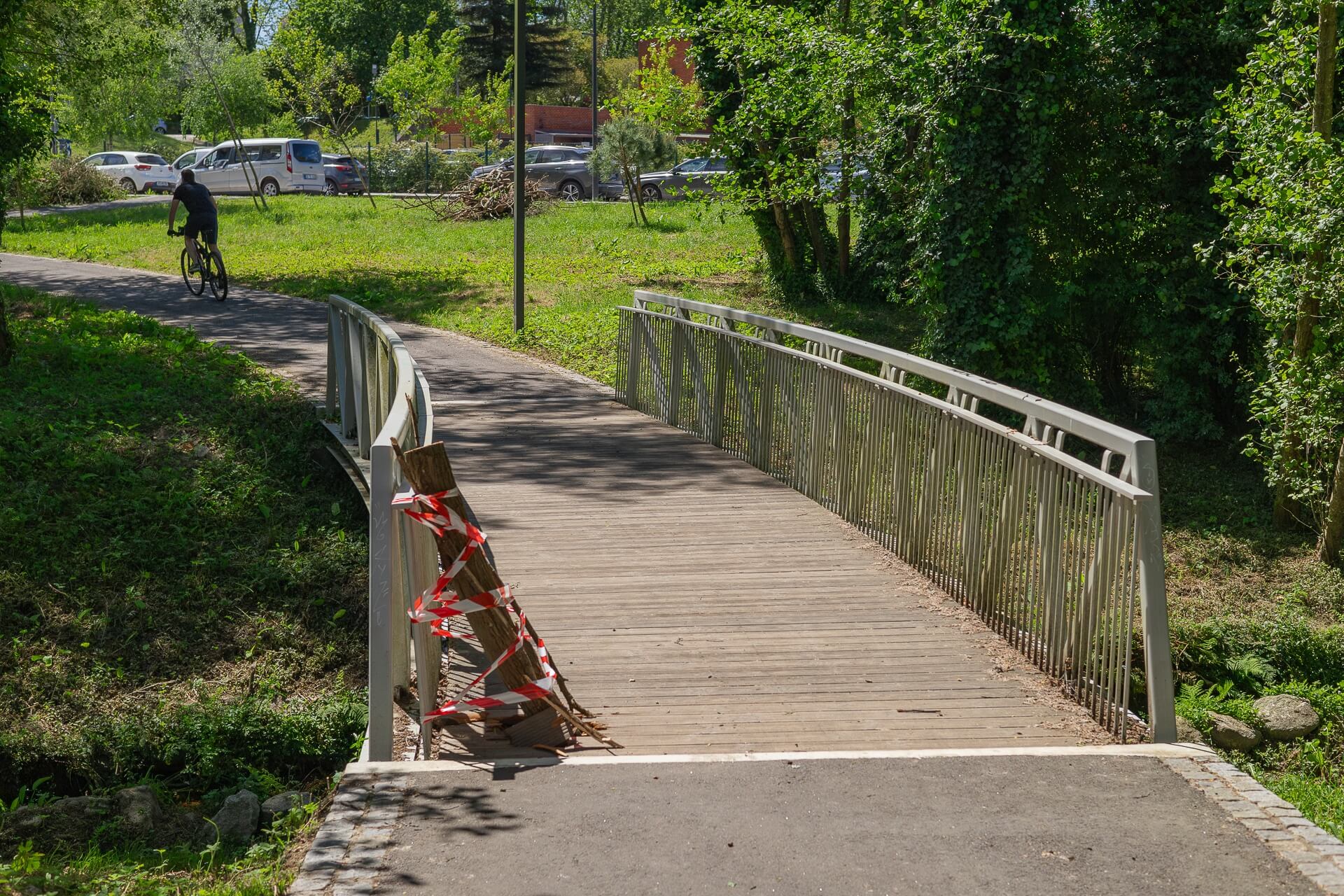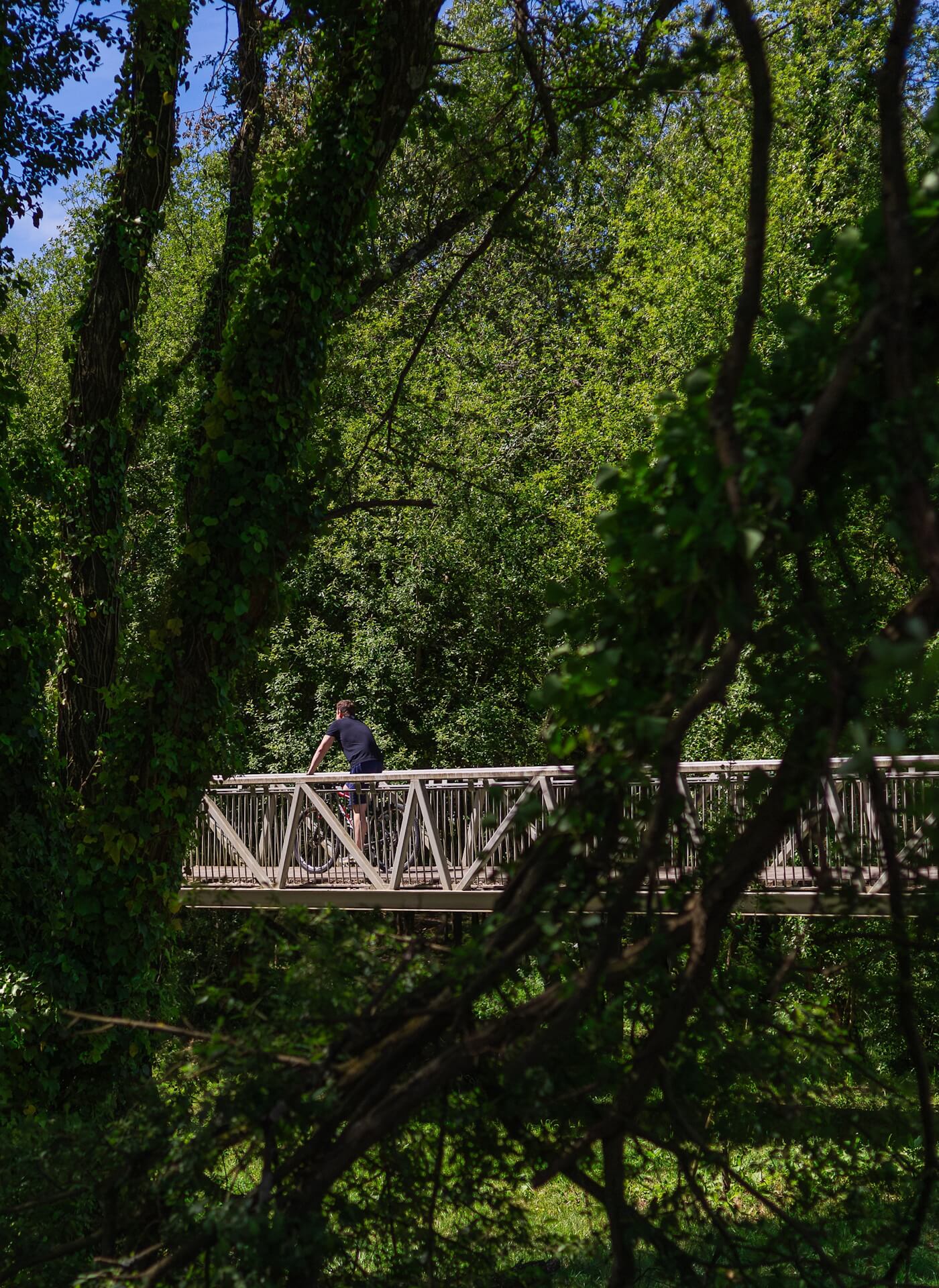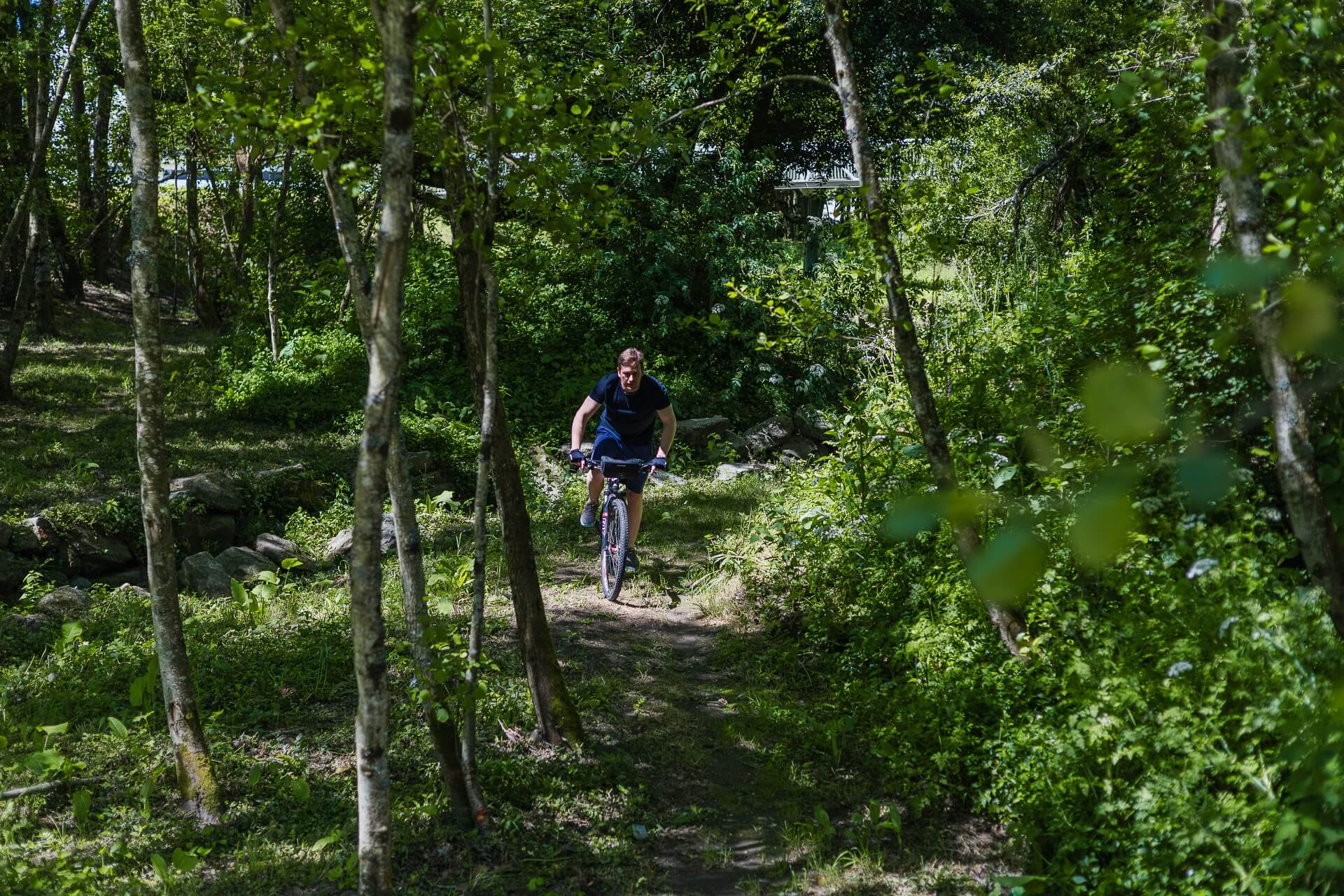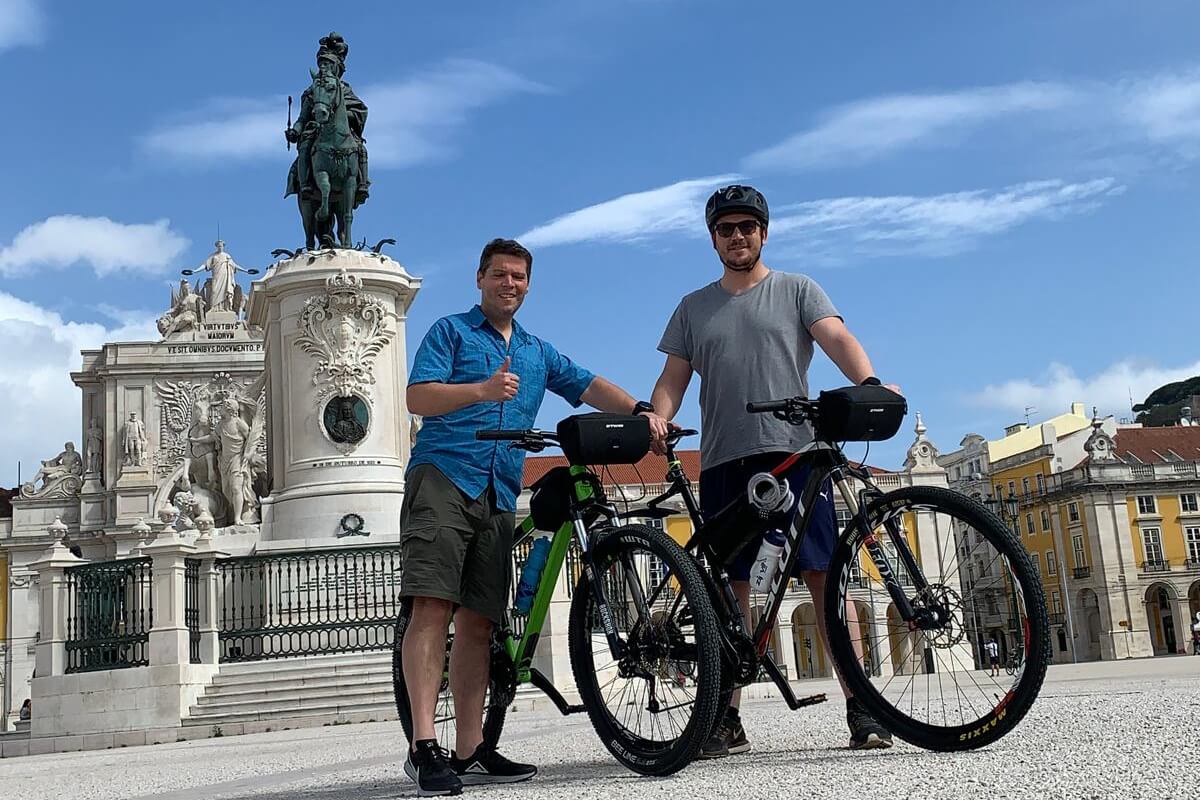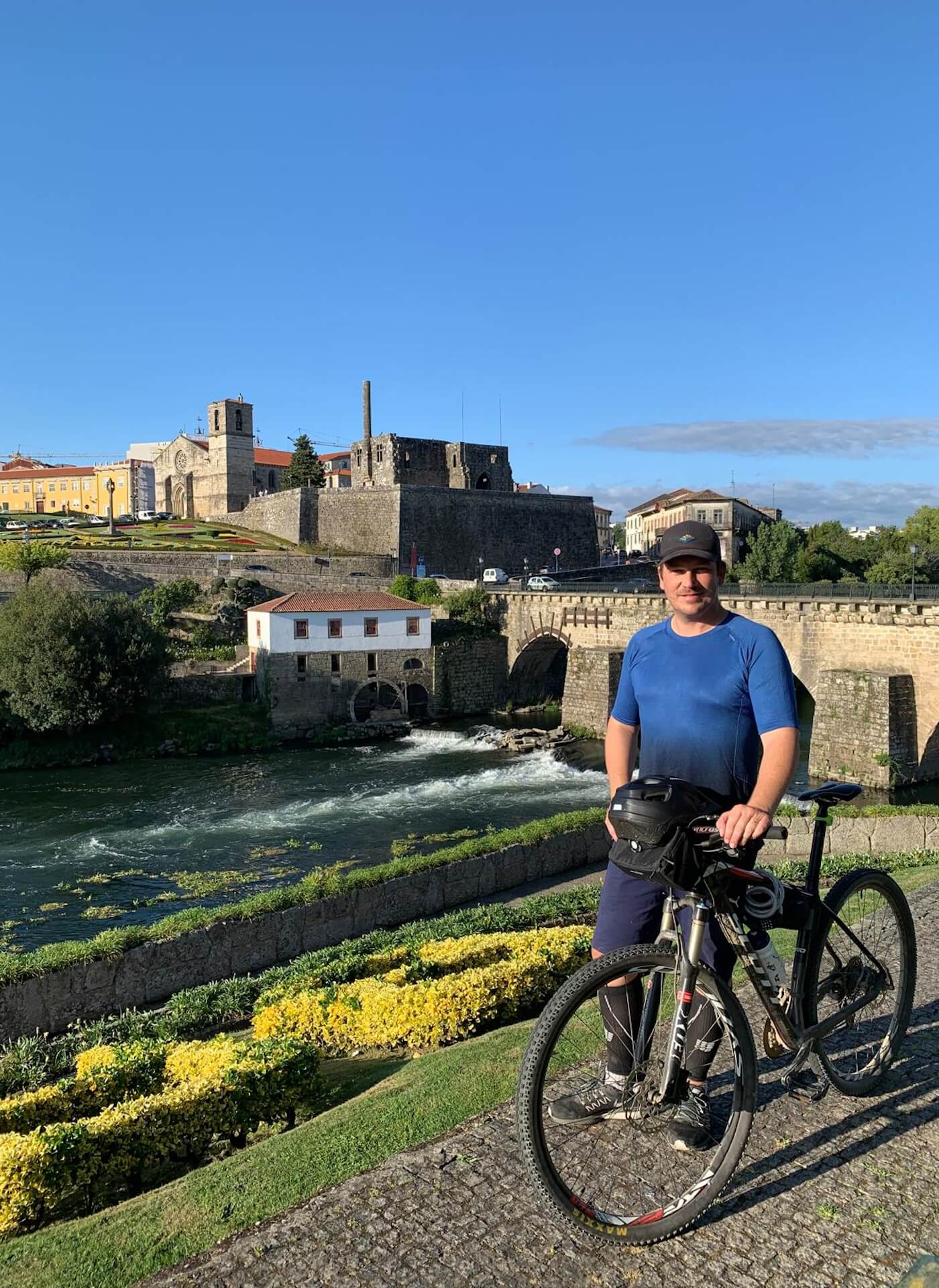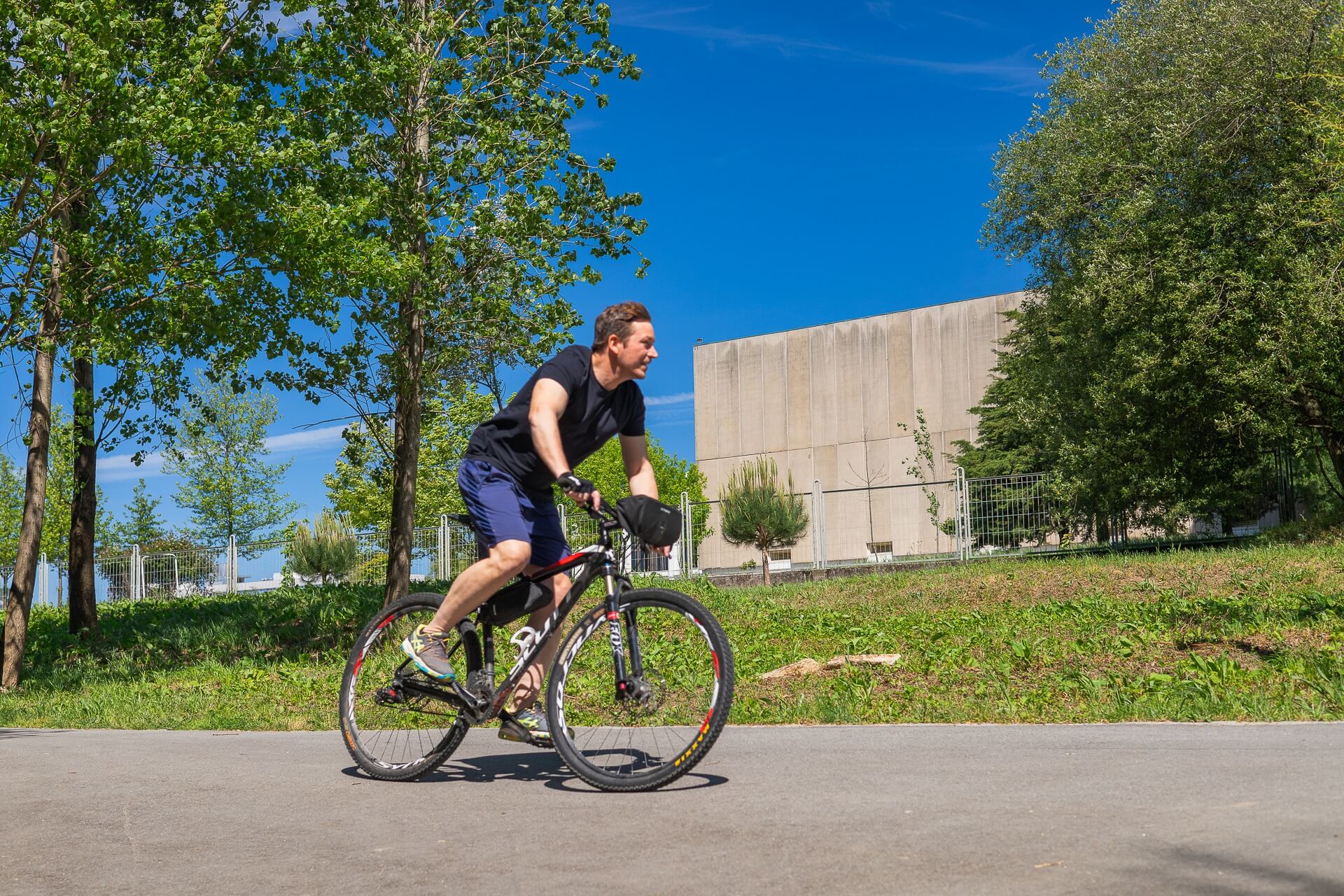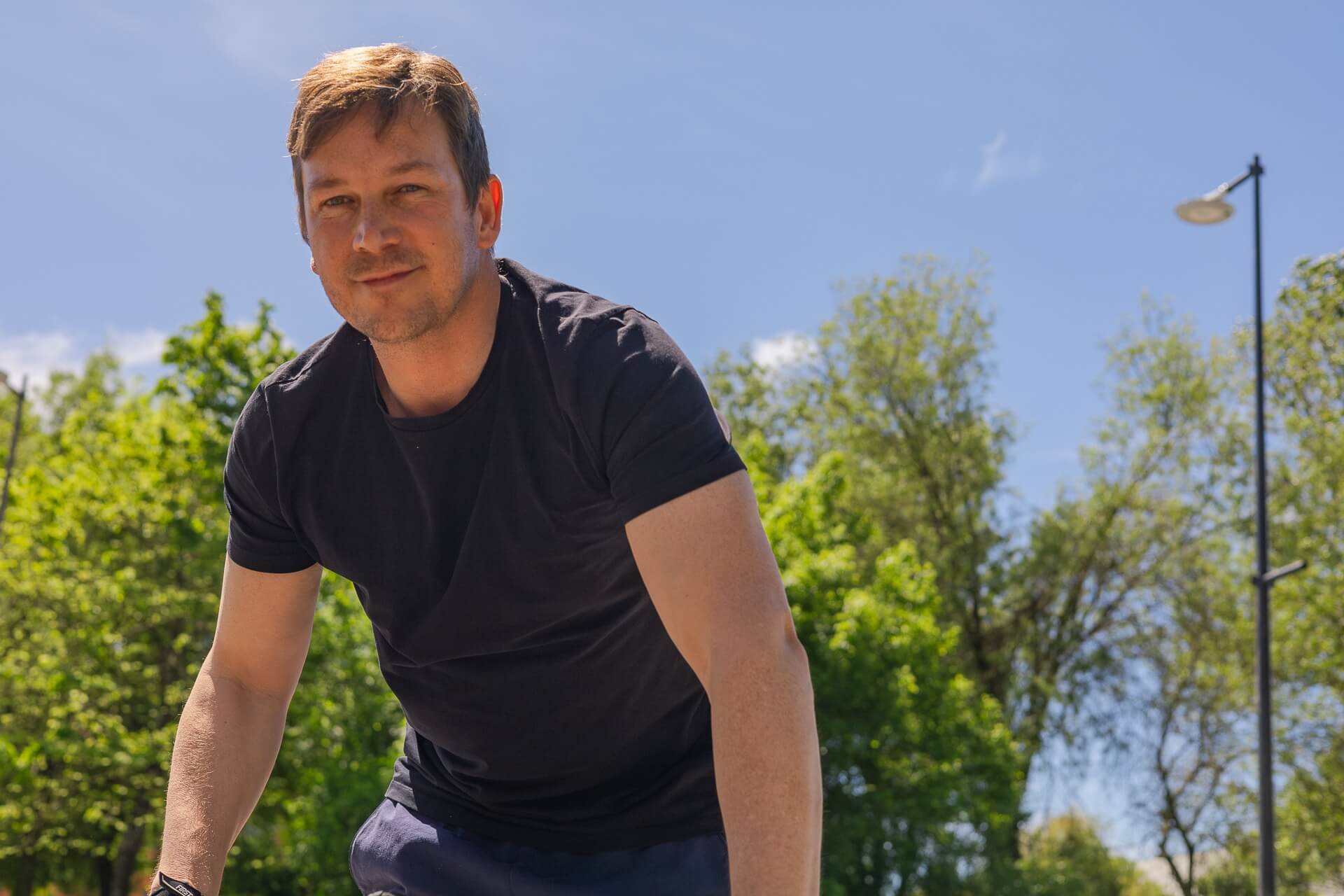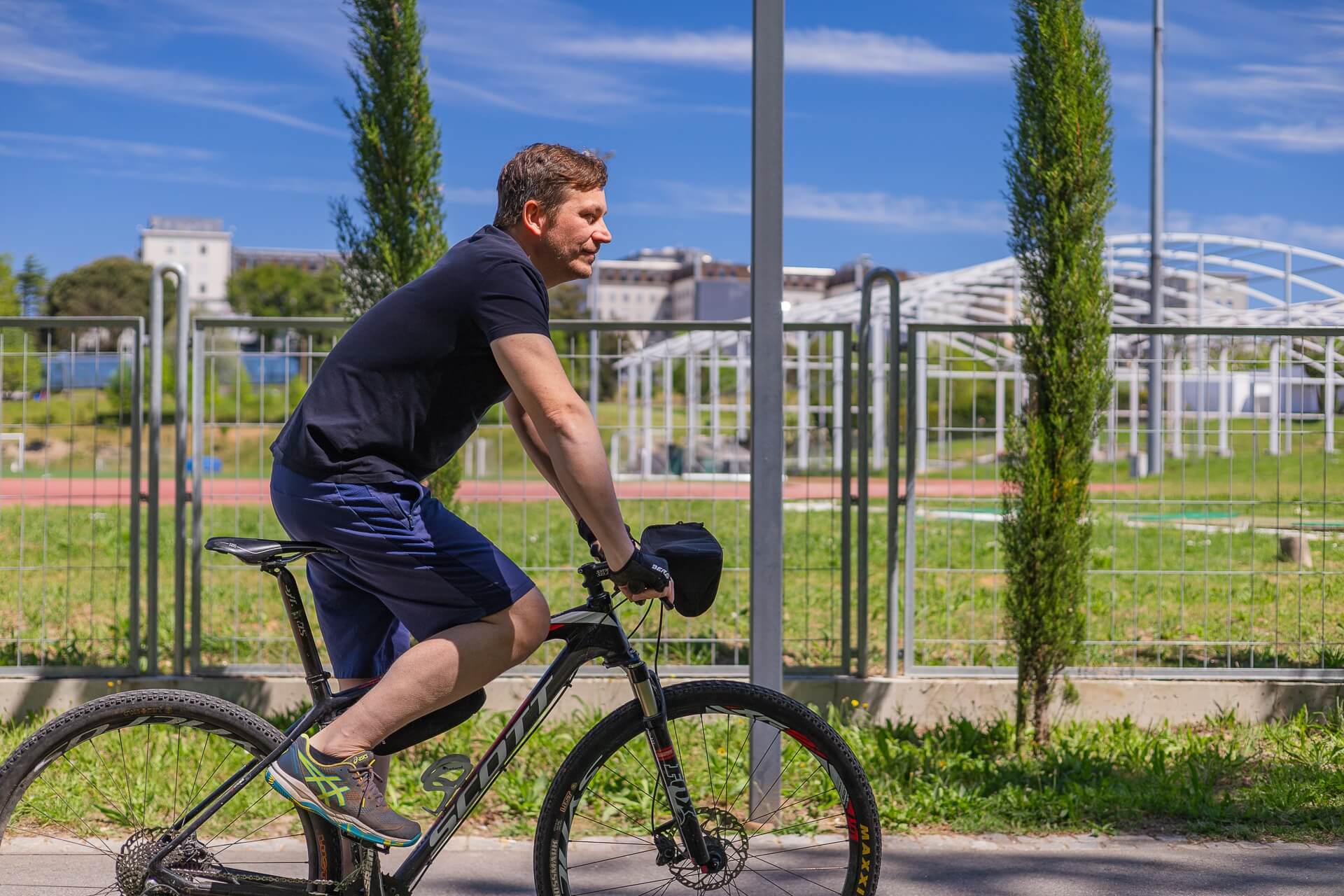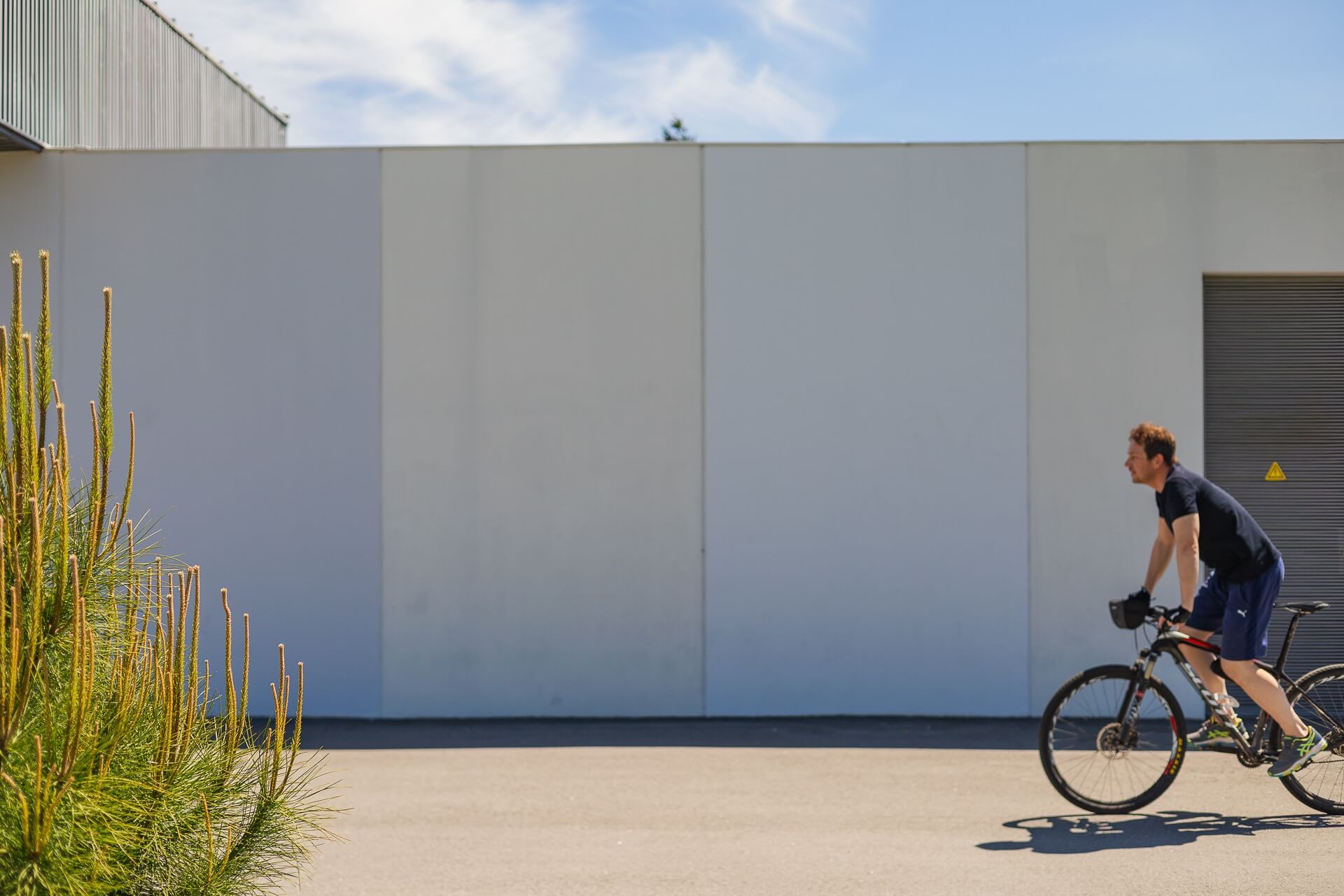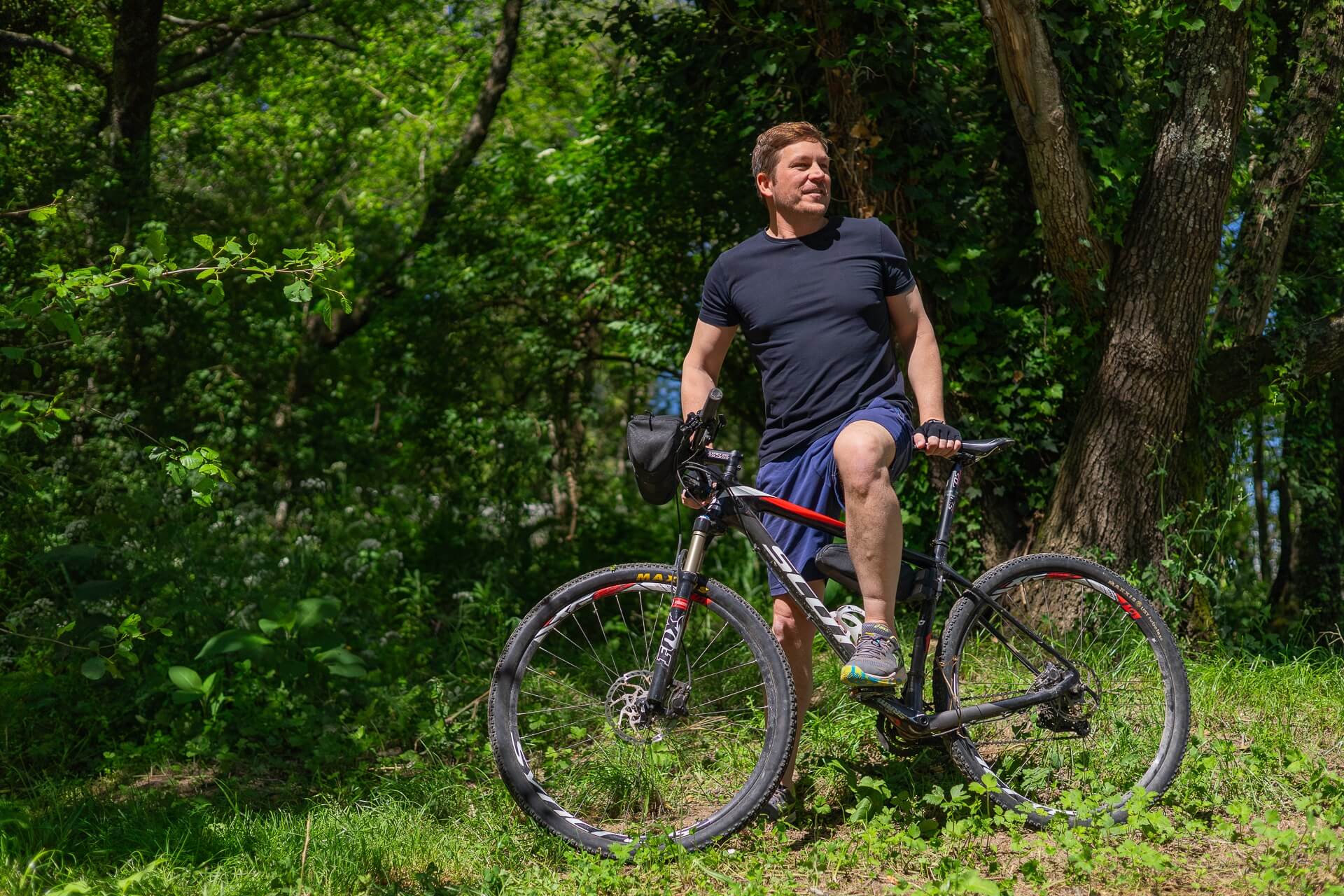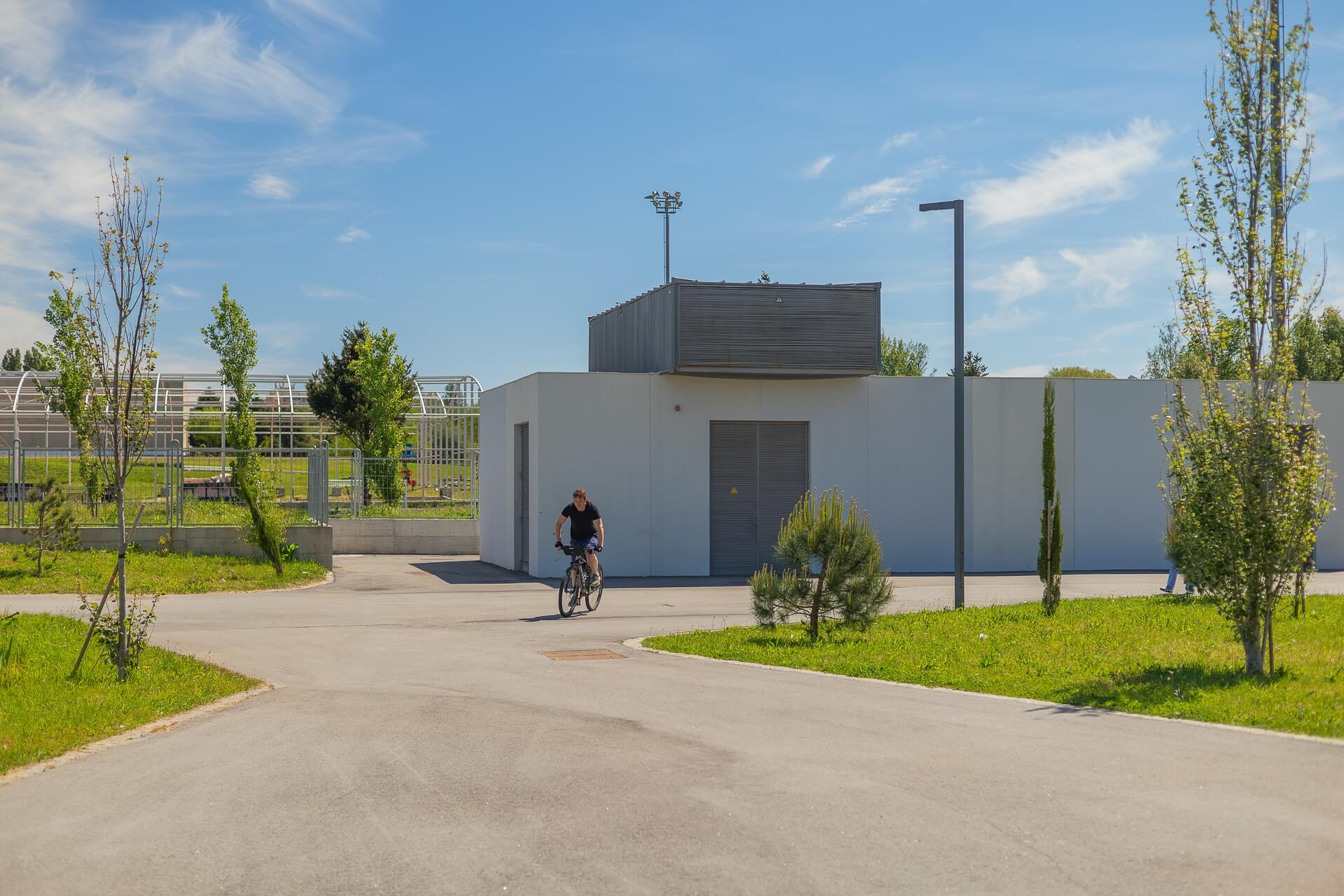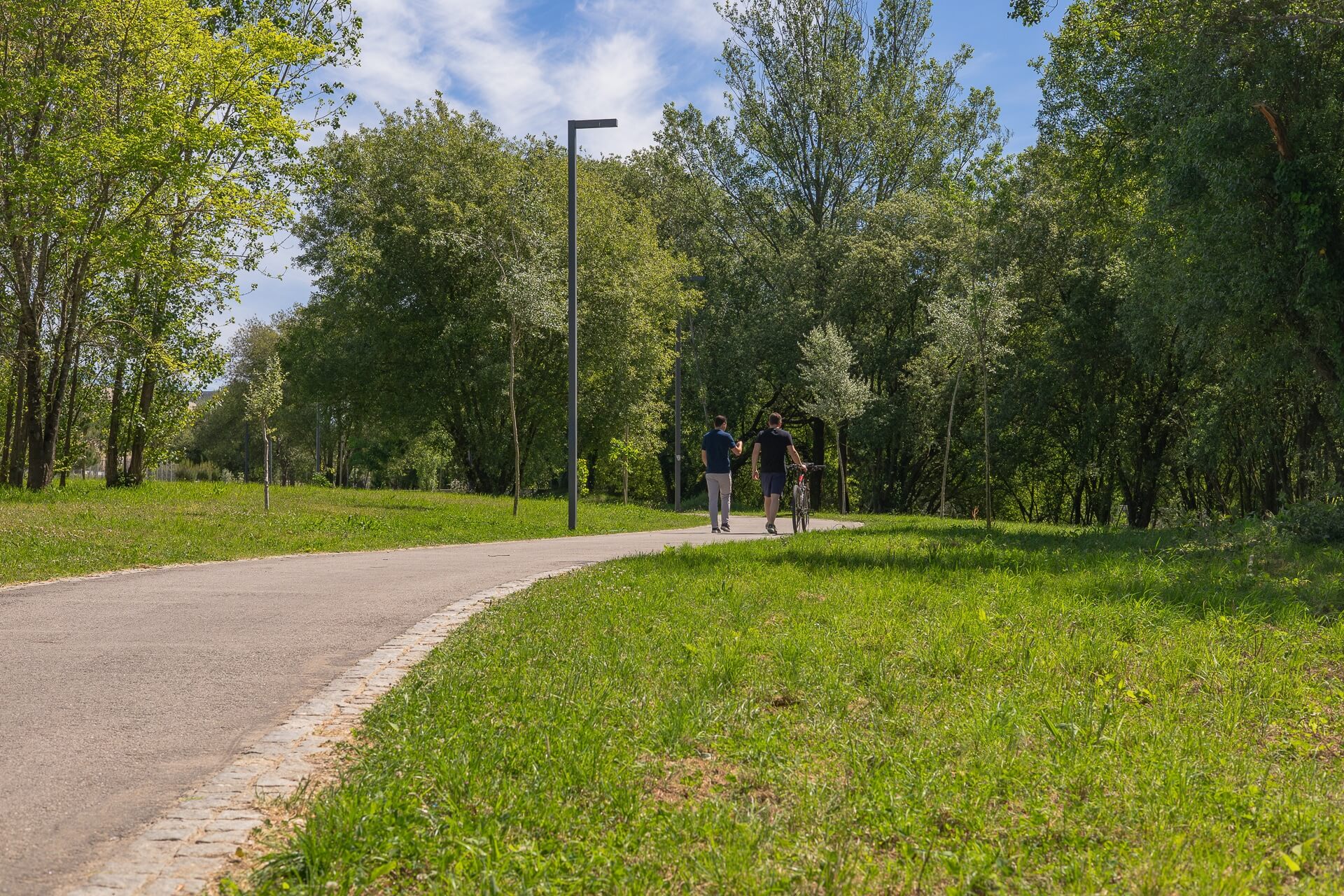André Dória: “Companies don’t work well if conflicts aren’t resolved”
André Dória: “Companies don’t work well if conflicts aren’t resolved”
Give and receive is essential in any win-win negotiation, and André Dória's VN Tech specialises in this area. But it's not only in the professional field that the entrepreneur's life has win-win situations. With the dedication he gives to long-distance bike rides, he receives peace of mind and the simplicity of life. With the dedication he gives to his company, he receives company appreciation and professional fulfilment. And with the dedication he gives to his wife and five children, he receives the cornerstone of his life. And you, dear reader, if you give a look at this edition of Out Of Office, you'll receive a story that shows how the common pursuit of good can move the world.
André, what is VN Tech?
VN Tech is the result of a desire by three negotiation professors to take the theory and practice of the discipline into the business world in a more agile and scalable way. We wanted to democratise what we do, which is advisory negotiation, and use technology to reach companies more easily and, in particular, focus on more beneficial, automated and structured negotiations.
And how did it all begin?
My interest was piqued in this area of negotiation during my MBA, some years ago, when I took an optional course in negotiation, and I was simply fascinated by how it combined the more analytical side of decision-making with interpersonal skills, the so-called soft skills. From then on, I thought: “This is what I want to do with my life”. I started working in this area, developing my own tools in Excel. As I gained experience negotiating renewable energy contracts with investment funds and other activities, I started preparing a course on negotiation, which I launched as a kind of startup, initially for friends and then for friends of friends. Later on, I was invited to teach subjects related to negotiation and business analysis at a business school, so it was the beginning of a gradual growth.
How did the idea of creating VN Tech come about?
It was formalised when I joined Nokia Mobile Networks as part of the global strategic negotiations team in Munich. During my time at Nokia, I came into contact with a professor of negotiation at INSEAD, a prestigious business school with centres in France, Singapore, among others, and was introduced to Professor Horácio Falcão, who had already developed a powerful methodology called Value Negotiation. At the time, we discussed the possibility of creating a centre of excellence in negotiation at Nokia. Although the project didn’t go ahead for various reasons, we established a relationship that has lasted.
And from that relationship VN Tech was born?
A few years later, for personal reasons – my mother’s illness – I had to return to Portugal. I gave up what I was doing at Nokia and started teaching negotiation, the most natural step to continue in Portugal. I joined Porto Business School and taught MBAs and executive programmes for a few years. At the same time, the idea grew in me to develop a technological tool to optimise negotiations. I started with a simple Excel sheet, but it gradually evolved into a more sophisticated version, with VBA macros to automate processes and analyses. I realised that I could turn this into a product, possibly a small startup, and I’d love to present it to someone to see if it gained traction. I showed it to a few people and one of them was Horácio Falcão. I met with him, and he said to me, “André, look, it seems to me that we have two possible approaches. Either we compete because I also want to do something like this, or we collaborate,” and from there history was made. The two of us got together, created VN Tech to use the name Value Negotiation linked to the methodology that he himself founded, and he had even written a book that serves as one of the most relevant references for what we want to do. We had a series of conversations beforehand, fine-tuned strategies, set up the company, brought in another person Horácio trusted, Rodrigo, one of our partners in the company, who is also a professor of negotiation at INSEAD, and launched the project. That’s how Value Negotiation Technologies began, the long name for VN Tech.
And how did your connection to UPTEC come about?
It came about in a very, very pragmatic way, I live next door (laughs). Obviously I’d heard of UPTEC, very well by the way, and I knew some of the companies that were incubated here. I had an office elsewhere, but then I moved to this part of Porto and thought I had to make a connection here, not so much for the physical space, but also for the additional services that UPTEC offers, such as contacts with potential clients, links with investors, mentoring sessions, events they organise to meet other founders, etc. I’d say it’s been a super positive experience.
“We do a joint negotiation exercise, maximising value, with the power of the machine”
What are digital negotiations?
They are Business to Business negotiations, in our particular case, which are no different, or shouldn’t be, from negotiations between humans, but which have the advantage that, by having a more digital process, we can automate them on a large scale, and that they are much more structured. It may sound strange, but it’s much easier to programme an automaton to be able to make proposals in a more logical way, using computing power, that maximise my interests and, potentially, those of the other party, than it is to have two humans chatting, having a beer, going out for lunch, etc., making a lot of connections, and then gaining a bit of trust, talking more easily about the issues, but then, when it came to optimising the value of the contract, we needed the help of the machine because it was more rigorous, had more calculating power. Basically, we do a joint negotiation exercise, maximising value, with the power of the machine. Hence the advantage of doing digital negotiations, because they can be much more ubiquitous, because they can be done on a large scale, in any company that has a minimum purchasing department. We’re setting this up to be a system linked to the purchasing departments, which then contact their suppliers and fine-tune the proposals here.
And how does your business model work?
That’s a never-ending question. We’re testing various models, looking for one that works well for our clients and that we can also be proud of as a business. Since this is a SaaS platform – software as a service – we ask for a fee to set up the platform in the company, and then, once we know what the typical negotiations are that they’re going to do, that they’re going to execute, we create the case studies, the so-called negotiation templates for each of these categories of purchases and, with that, we prepare the integrations with their systems, we prepare the objectives, the preferences of the organisation when it makes purchases.
Which companies have you worked with?
I think we could go into almost all of them, because this is a general tool for solving a substantial part of the various procurement categories. Because negotiation is more of a process, it’s not really the content that we put in there. So the structure is flexible enough to be able to analyse various categories. But the rules of entrepreneurship dictate that you should start with one case, learn it well and then scale up step by step. That’s how, some time ago, before we made the decision to move from our negotiation machine to procurement, we ran a pilot in different areas. Firstly, we did a pilot to help Danone, I can tell you that it was a few years ago and it wasn’t continued. It was done so that they could structure negotiations with distributors here in Portugal, sell yoghurts in a more structured way, negotiate clauses such as shelf space, whether or not we have the right to a top of the aisle, how much we pay to have more promotion in the supermarket, etc. We learnt a lot, but there was no continuity. And then we had the COVID pandemic, and with that we realised that there were big problems with the airlines, cancelled flights, unpaid compensation… So we pivoted there, launched ourselves on a large scale, and realised that things were going quite well in the exercise we did at Lufthansa. And then came this third part, which was procurement negotiations – helping with the process of supplying, acquiring and paying for goods and services, because that’s where we thought it would fit like a glove.
Did this project at Lufthansa, in a way, give you that validation for what was to be your future as a company?
I would say that the great thing we got out of this pilot was exactly that. It was us designing a negotiation concept that could potentially apply to the masses, and finding a way to negotiate win-win. On the one hand, the airline’s interest was to retain as much money as possible, and on the other hand, to improve the relationship with passengers who were frustrated, who missed their flight, and give them something in return that was low cost for Lufthansa but high value for the passengers. The results were very interesting. We managed to make big savings at Lufthansa level, we managed to get passengers not to ask for money, but to ask for other things such as an upgrade to business class, cheaper or free access even to Business Lounges, access to cheaper hotels with the same conditions as their crews. In the following questionnaire, across six different relationship dimensions, on average 8.5 out of 10 passengers would rather use the system than Lufthansa’s call centre department. Not to mention that it’s much quicker.
A solution that can be very comprehensive...
Yes, yes. In the meantime, we’ve moved on from airlines to textiles, perhaps because we’re here in the north of the country, which has a dense industrial fabric. I ended up doing some demonstrations, there was a German group that wanted to take this on, and it was our first use case, and we have aroused some interest in other companies in the sector, but we don’t have limited discussions just here. We’ve also been exploring other potential partnerships in metalworking groups, online retailers, various types of sectors.
Before setting up VN Tech, did you already have practical experience in the field?
Yes, we have helped a number of international clients in very different sectors. Lately I’ve been covering more of the oil, energy, telecoms and pharmaceutical sectors, which is one of the most important sectors for Value Negotiation, and my partners have worked with renowned investment banks, American tech giants, whose names we know and use every day (laughs). Not only training these companies, but also solving specific problems, such as a large global streaming company that is negotiating, for example, where the button is that gives direct access to my streaming service, with a global television leader or, for example, an airline that is trying to solve its rather large problems, which were already at the level of going to court and news reports badmouthing each other, etc. Basically, the team helps with these big challenges, which have a big impact on companies because companies don’t work well if conflicts aren’t resolved.
“Win-win is the path we choose to take”
And do you think there's a possibility of a win-win in every negotiation?
That’s an excellent question. You know that “win-win” isn’t exactly the result. Win-win is the path we choose to take. I believe it’s possible to choose this path, we just have to realise that when we do, we’re taking several negotiating steps. An email is a negotiation step, a phone call is a negotiation step. Not replying to a message is a negotiating step, but this path is made up of many small steps that can have two hypotheses: either you win – “win-win” or you lose – “win-lose”. It’s up to us to choose the right paths and to be consistent in order to find a “win-win” path for any negotiation.
Within your area there is a company called Pactum, the market leader. How does their journey also influence your steps and your future?
I think their journey makes us very happy because they have demonstrated, very successfully, that there is a gap in the market and that there is value in filling that gap. They’re actually a few years ahead of us. They’ve already managed to raise a much larger investment than us, the last one was eight million euros. They started in Estonia and have moved on to San Francisco, they already have big clients, big names, so they’re clearly ahead of us in general terms. It was great to realise that this path they’ve taken is one that works, but we have a different approach. They work mainly with Fortune 500 companies, companies with a turnover in the high billions, but because their procurement negotiation team is limited – large, but limited – they have a specific problem: they can’t go to all the other companies. So those smaller suppliers, which are huge, and which are part of the tail-spend, where there is a very high volume of transactions at low cost, also need this type of negotiation. Adding up all these companies is a very considerable volume. And you’d have to spend a lot of time negotiating, which this team doesn’t have.
And this is where VN Tech differs from Pactum?
We have a different process to theirs. We think ours is more win-win than theirs. We take a slightly more open-book approach, and we try not to use the idea of coercion or threats. I’m not saying that they do, but we clearly don’t want to use anything that sounds like a threat to get what we want. And our product is flexible enough to do more strategic negotiations. Not just the smaller ones, but also with larger suppliers, with clauses that are a bit more complex, because we think the system lends itself to those negotiations too. It doesn’t have to be exclusively automated for the small ones, it can even be programmed by the company’s purchasing negotiators, except that instead of taking 100 units of time to do it, it takes ten or five. They gain, not only in time, but also by being able to do many more negotiations, and often with savings.
How can you boost your growth at the moment?
We can boost our growth on two levels: improving the product and improving the sales side. Our product already does the basics reasonably well, which is to allow you to create templates, negotiate automatically with suppliers, register the best proposals and award the best. Now, business development is where I think we have our work cut out for us. On the digital marketing side, on the sales side, which many of us do within our network of contacts, because we’re still talking about our first cases. We want to improve the marketing side, improve our materials and then, yes, speed up exposure and improve leads to come to us, which is something that is already starting to happen, fortunately. As we also see that there is a gap in the market, both in Portugal and abroad, this is what will allow us to grow. We’re open to external investment, as we’ve already received recently from Loyal VC, venture capital, Business Angels, to feed us on both fronts: improving the product by making it more scalable, and reaching more customers.
What have been your main achievements so far?
I’d say that so far it’s been learning from the market, validating the concept of negotiation that we have, showing the ability we have to realise the product, that the product we have works well, that it can be replicated in different cases. The first clients are also an important achievement. And the signal we are receiving from much larger clients, I would say that this is perhaps our greatest achievement at the moment. We don’t have anything closed yet with these potential clients, but we’re deeply on the radar and we’re having serious conversations, already entering the field of negotiations to do something nice.
And what is the biggest difficulty you've had so far?
The biggest difficulty we’ve had is getting access to programmers. We don’t have that problem any more, we’ve solved it in an effective and lasting way, but we’ve suffered a lot from it, and we’re no closer to Pactum because we’ve had some problems with the development force. We had to resort to outsourcing companies, which can be a good experience in many cases, but in our case it wasn’t. We lost money and time. We lost money and time, but once we realised the problem, we managed to solve it strategically. We made an alliance with two software houses, we’re close and we’re mutually in love with the project and the people. We’re very cohesive and making developments that are working extremely well. But these more difficult times have created grey hairs and wrinkles on our faces (laughs).
The hustle and bustle of everyday life doesn't stop him from going to the gym "to work out" throughout the week, but it's with his family and friends that he most enjoys spending time, and discovering the country on two or four wheels. As his "sixth baby", VN Tech, continues to make steady progress, André Dória's life revolves around his five children and his wife, and it is with them that he wants to travel when they are older.
What were your early years like?
I’m from Coimbra, where I grew up and lived all my childhood, went to high school and even university. Initially, I started studying physics, but around the second or third year – I can’t remember for sure – I realised that what I really liked was programming and product development. So I decided to change course. I chose not to do computer science because I thought it was too database-centred and too technical. I then chose electronics – computer branches, because I thought it had a broader perspective, was more connected to physics, electromagnetism, programming and more exposure to maths, which was what I liked at the time. Then, in electrotechnology, I ended up having as my favourite subject something that has nothing to do with electricity: operational research, which is basically the cross between mathematics and decision-making. It was what I liked at the time. There were other subjects that I also liked, programming subjects, software development, but it was these two that I can say I enjoyed the most.
So you got a flavour of decision-making based on mathematical models...
Yes, because I’m the most indecisive guy I know (laughs). My wife never asks me anything because she knows I say A and then I say B, so she can’t count on me for important things (laughs). But this is because I think about too many variables and end up dragging out the decision. Hence the need to use more structured models to be able to put some numbers, some probabilities, some paths, weigh them up, and then say “it really makes sense to go this way”.
And as a student, were you hard-working?
In high school I think I was a student who got good grades, but I wasn’t the best of the best. I gave myself the time that it was healthy to give to my studies, what I wanted to do was play, play ball and all the things that kids want at that time. As I didn’t know what I wanted to study at university, I can’t say that I had a light that shone on me and said “you have to be good in this area”. So I wasn’t brilliant in any of them, but I was quite reasonable in all of them. I didn’t decide which course I was going to study at university until the very day I had to fill in the application form (laughs). I remember standing there in the kitchen at five in the morning, pacing back and forth, and thinking “sod it, I’m going into physics”. It seemed to me to be a course that teaches you how to think, at the time I’d read a few books on experimental physics, theoretical physics, the crossover with maths, and I thought it was beautiful, I didn’t understand it at all, but I thought it was beautiful, and I thought, “man, I’m going to get a good dose of hammering, I think in the worst case it’ll be good, it’ll help me think, structure my reasoning and then I’ll see what I want to do”, but at the time I felt I wanted a good challenge and I was open to being hit (laughs).
And what did you like to do when you were younger?
I used to go to the square, which was that area next to the house where the neighbours from the neighbourhood would get together to play football. I liked doing that, I liked playing with my cousins, I liked sleeping over at their house, I loved walking with my mum through Choupal, the Botanical Gardens in Coimbra, doing programmes with my grandparents and playing with my brother. I’m of German descent, so it was also great to go to Germany with our family in the summer. It gave me exposure to the culture and the language, which was good, because later I ended up living there. I already had a good grasp of the language, so I easily put down roots there and had a good few years there when I finished my degree.
How do you currently divide your day?
Nowadays my day is binary: it’s either work or family. I don’t have much time for hobbies. I mean, I do have one thing that I really liked and used to do before I had a bigger family, which was to get on my bike with a friend, with whom I started going for these rides, or with my wife, and suddenly the thought arises of preparing the bare minimum and heading off on the road, with no defined destination. I’d say this is what I most like to do outside of my current binary universe.
A binary universe very focused on your children.
Very focused on our five children! A really big family, especially for today, but small for the scale of my wife, who has 12 siblings. Even so, she wants to have more children and I think we’re already in a zone where we’re absolutely fulfilled (laughs). It’s a big challenge, as you can imagine.
And do you also try to instil this cycling bug in them?
The older ones, yes. We’ve already done a few cycle rides with them. First in the back on pushchairs, now on their bikes. At home everyone has their own bike, even Manel, who is 11 months old, already has a tricycle, so we can get ready for our family rides. We haven’t done any that I can say have brought everyone together, but we do the small ones. We go to the city park here in Porto. We haven’t yet realised our project of going to Vila do Conde together, sleeping there and then coming back the next day.
Have you always enjoyed doing this?
Not really, it only came up when I was older. Having a certain connection to the Jesuit community here in Portugal, I started doing holiday camps when I was little, and later I got to animate some of these camps. There I learnt how to lead a more frugal lifestyle, and I set two of my friends a challenge. One ended up accepting, he was in his 30s at the time, and it was: “Why don’t we do as some of these Jesuits do here, which is to take the bare minimum, a rucksack, no money, and just go for it, walking and walking and walking, meditating, praying, with no set route? To experience what life is really like in the simplest possible way?”. All this because I saw these people coming home completely fulfilled, and they didn’t have to go on a cruise. They didn’t have to go to Ibiza, they didn’t have to do anything like that.
And deep down, that's the reward you get when you get on your bike and go nowhere?
That’s what I feel and it’s deeply enriching. I started out on the Roads of Santiago on foot. A week later, with my friend, we set off on our bikes, carrying only a bag. As on the Roads of Santiago, we avoided carrying rucksacks, so we were the fastest pilgrims to reach Santiago de Compostela. We only wore a T-shirt and a belt with an extra T-shirt, some blue soap to wash the T-shirt and shower with for the next day, some slippers for when we got to the hostels, and it’s exactly this spirit that we take with us to the bike rides. The difference was that instead of travelling 20 or 30 kilometres a day, we travelled 100 kilometres every day, which allowed us to reach Grândola in just five days the first time we did this bike ride. The question was: where do we point? North, south or inland? We opted for the south, where it’s warmer, and so it went, with no certain destination.
Is it the furthest you've ever gone without a destination?
We’ve been to the Algarve. We arrived in Faro and had a programme to go from Faro to Tarifa, but now with children it’s more complicated. We’ve been up to Santiago de Compostela and sometimes, when we’re short of time, just a day or an afternoon off, we go from Figueira da Foz to Coimbra, have a bite to eat in Mealhada and then take the train back to Figueira. We have to adapt to the time we have available, but our idea, if time were more generous for me and this friend, would be to take the bikes and perhaps go to the south of Spain. As I said, I passed this bug on to my wife. Before we got married, when we were still dating, we cycled the Roads of Santiago.
“The babies in my family and the baby that is the startup, they can all cry at the same time”
And how do you reconcile being an entrepreneur with being a father?
I don’t think it’s really reconciling, I think it’s more like “surviving”. But it’s not impossible at all: it just means having several babies: my family’s babies and the baby that is the startup, and they can all cry at the same time. My free time is when my children are at school. When they come home, they are my absolute focus. But the startup also cries and calls out to me, while my children are also crying, so here it’s about managing to balance myself, without falling, on this rope that is so thin and long. Then, combining this with not-so-well-slept nights, when one has a cough, another is ill, waking up early to prepare tasks for the company, then breakfasts, and only after that do they go to school. Then I have peace of mind (laughs), I can work, work, work there at 200, 300%. Then they come home, play, have a bath, go to bed and I work on the startup for a few more hours. Sometimes at the weekend too, I have to. Reconciliation isn’t easy, but it’s rewarding, dammit. In that respect I feel quite fulfilled. I’d love the company to take off more quickly, I confess, but I feel good, I feel fulfilled by these gifts that have happened to me.
What takes your sleep? The company or the babies?
It’s the babies (laughs).
Apart from these long bike rides, is there anything else you occupy your time with on a daily basis?
I go to the gym (laughs). I think it helps a lot, and I’ve started to be a bit more regular. I have a PT there who is helping me, guiding me. I told him: “My goal is to not have to think about anything. Do everything for me. All I have to do is lift weights and do what you say,” and it’s been a good experience. I spend an hour a day there and I can recover my energy, it gives me that boost on several levels. It clears my head, then I can spend the whole day at home or in the office and not worry about anything else.
Where do you see yourself in five years' time?
I’d like to see myself in a different phase of the company’s growth, more in autopilot, where I’m not needed as much as I am now, so I can have more free time for the family and we can start doing our bike or motorhome tours, which we’ve already done a couple of and we all love.
And how do you see the world in five years' time?
That’s a question that makes me somewhat anxious because of these geopolitical issues, these wars. Russia, Ukraine, Europe, the West, Israel, Hamas, Palestine, the Middle East. I think these things are starting to escalate, they’re turning from hotspots into regional conflicts, and I’m very afraid that this is going to turn into what people are talking about. Something more on a scale and a repeat of what happened 70 years ago. That’s my biggest fear… But I also see some brightness and some optimism, above all in the combination of technology with new ways of working, with new ways of evolving with humanity, very much based on this advance in AI. Technology is so ubiquitous that there are many positive things that can come out of this.
Do you think these world conflicts needed a booklet like Horacio's to help solve the problems in a win-win situation for everyone?
I think they were too late by then. I think they should have been taught when they were children, or when they were at school. That would have been much more efficient, because what really moves the world are power dynamics and these should be understood and assimilated as soon as possible in order to be able to navigate them. The goal of nations is to become more powerful. And from the moment that this is the goal of rulers and nations, then they want to ensure that they maintain this supremacy of power. This is achieved at various levels: at the economic level – by having more for myself, letting the other person have something, but bringing more for myself; at the military and defence level – to be able to retain what I have, in terms of the message conveyed to the inhabitants themselves; so I think there’s a big exchange of priorities here and I don’t see a big change in mentality any time soon. Coercion and threats will generate a very damaging effect of resistance on the other side and counter-attack, and that’s why we can’t reach a healthy balance. This is the problem with the relationship between the more powerful nations and the less powerful ones. Win-win thinking is not used.
What's your greatest virtue and flaw?
According to my wife, perhaps spontaneity. She also says that I speak with a certain ease, although I don’t really agree (laughs). In my opinion, I love a good challenge and putting together a strategy to overcome it. As a defect, I suffer from an ailment called disorganisation and I don’t like routines very much. Come to think of it, maybe it’s this intersection of disorganised ideas that makes me think about things differently!
So it can be seen as a virtue. Do you always try to find ways to mitigate its flaws?
That’s a consultant’s answer, isn’t it? (laughs) These are my big faults, but presented in this way, they sound positive (laughs).
Do you have a favourite word?
I think that word is Son. The word that completely changed who I am as a person. From the moment you become a father, you’re no longer a kid. Now it’s for real.
And are there any dates that are etched in your memory?
There are a few. Some for the worst reasons, others for the best. The best is the birth of my children, of course. The date of my wedding. And the founding of startup, on 1 August 2019. The others have to do with family members who are no longer here.
To finalise, tell me three things you'd like to do with your life.
One huge goal I have is to get my company off the ground, without a doubt. The other is to have children who are well educated, independent, autonomous, with their values in place and able to make their own decisions. The third would be to have more free time to go on these cycling getaways, a few holidays, or to spend more time with my wife and friends, to have more time to relax and plug in.
April 30, 2024
